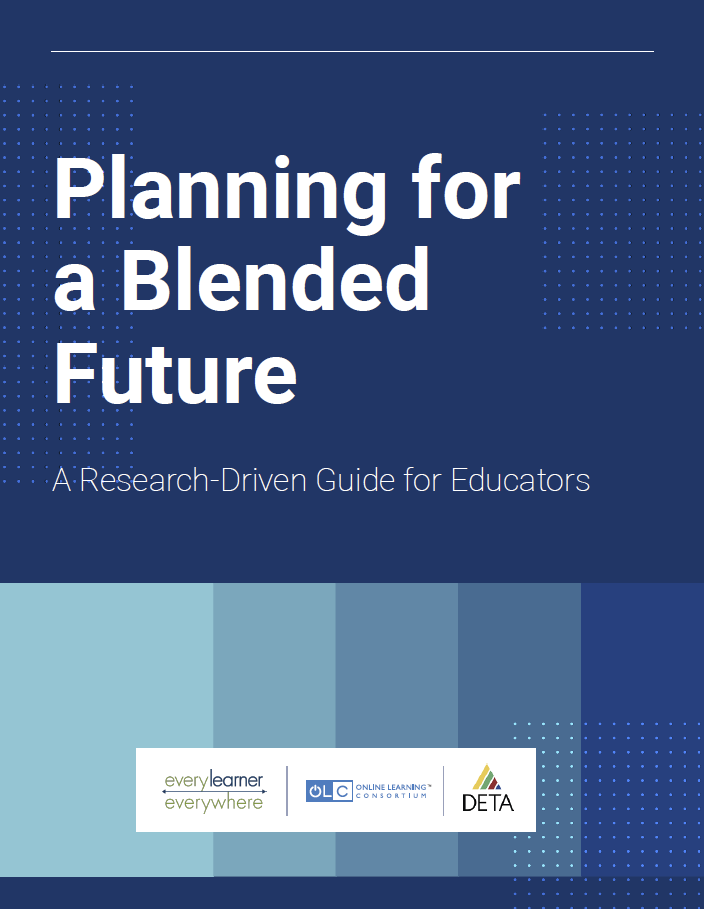
This guide moves beyond getting started with blended learning to help educators realize the best of online and onsite instruction and implement research-driven techniques to positively influence student outcomes.
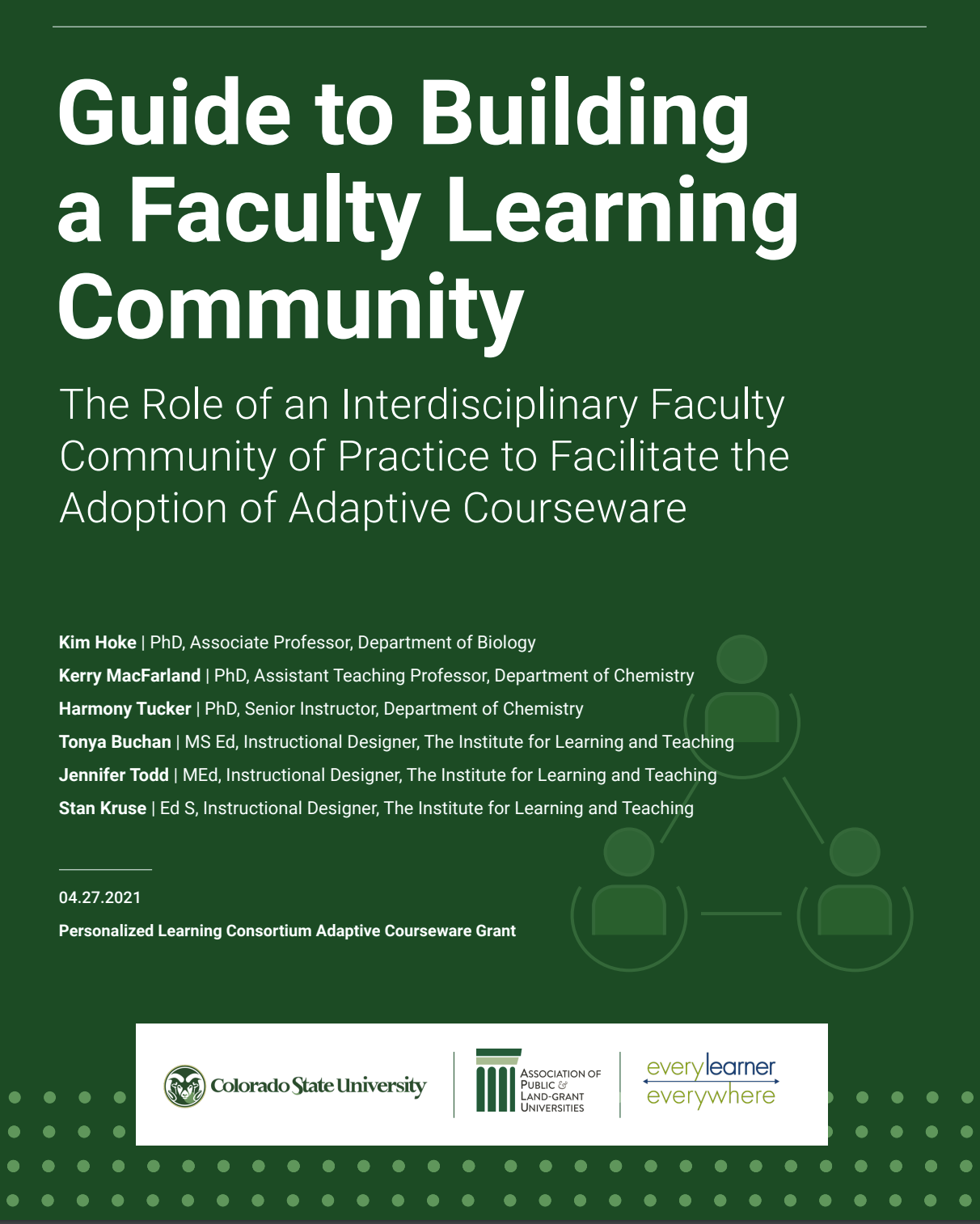
This resource describes how to build and maintain faculty learning communities, details some logistics, and provides a case study from Colorado State University along with testimonials from instructors.
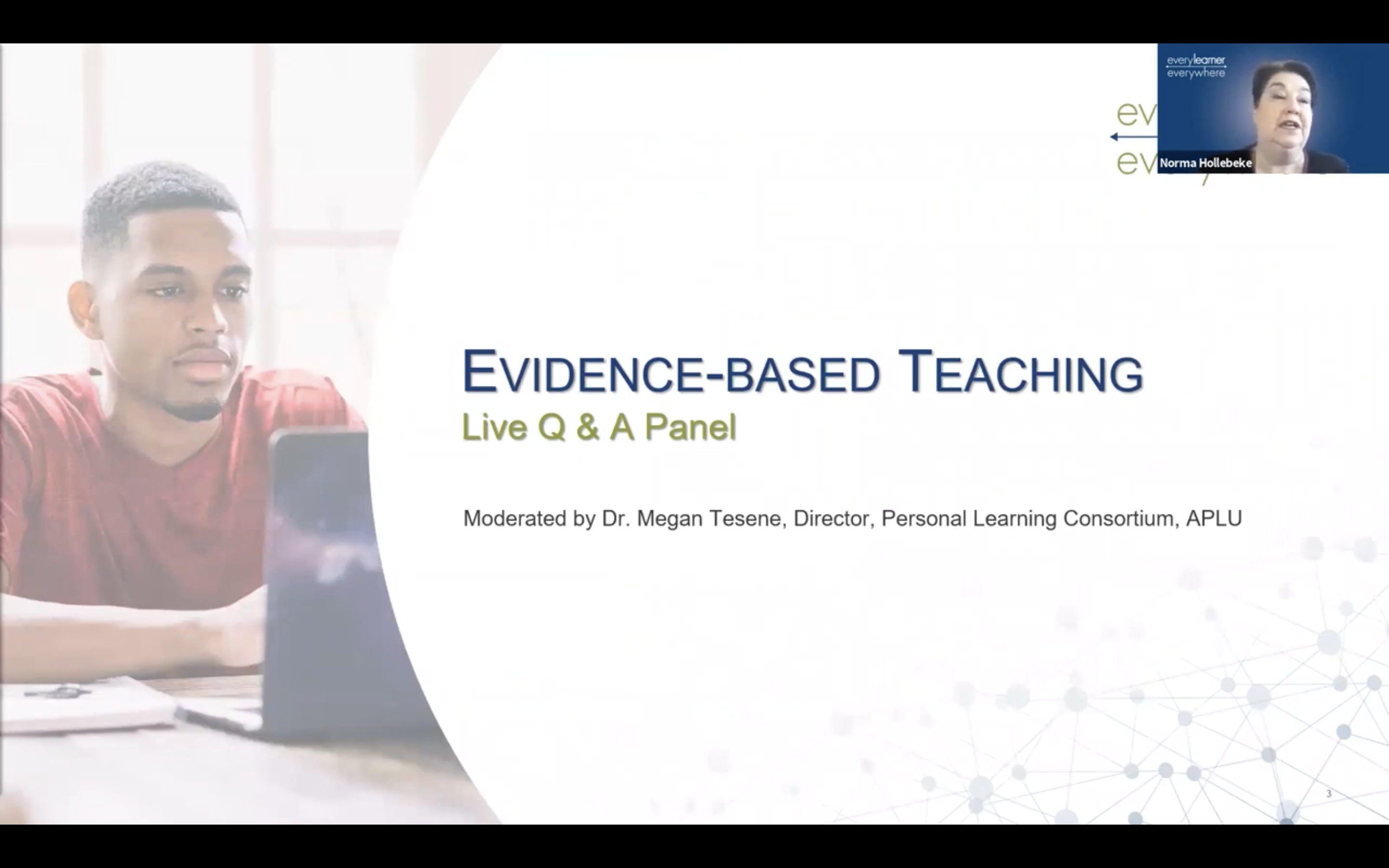
A panel discussion about Evidence-based teaching strategies that center equity in online and hybrid modalities.
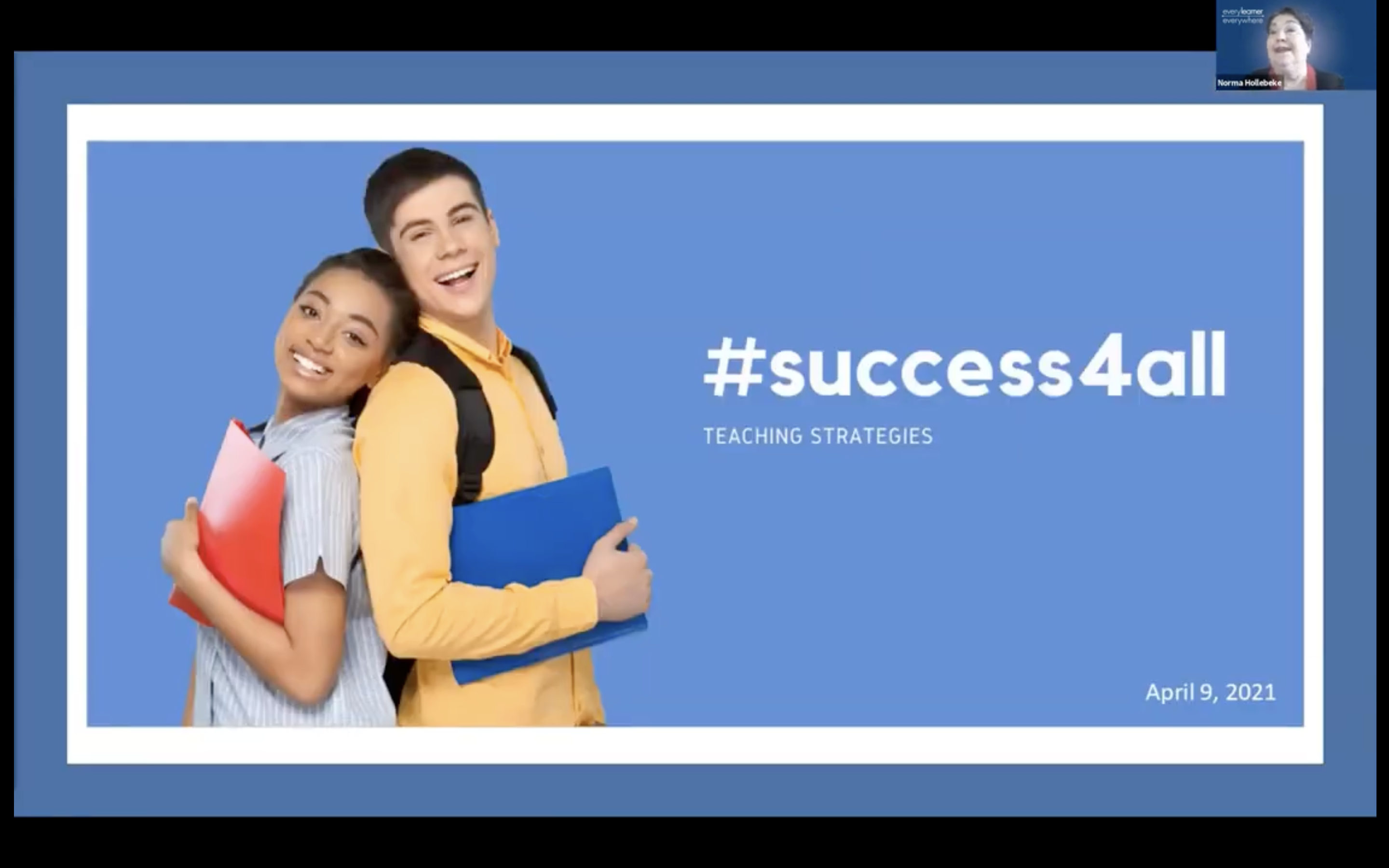
In this webinar, learn simple teaching strategies to help students take charge of their learning and ensure all students master content.
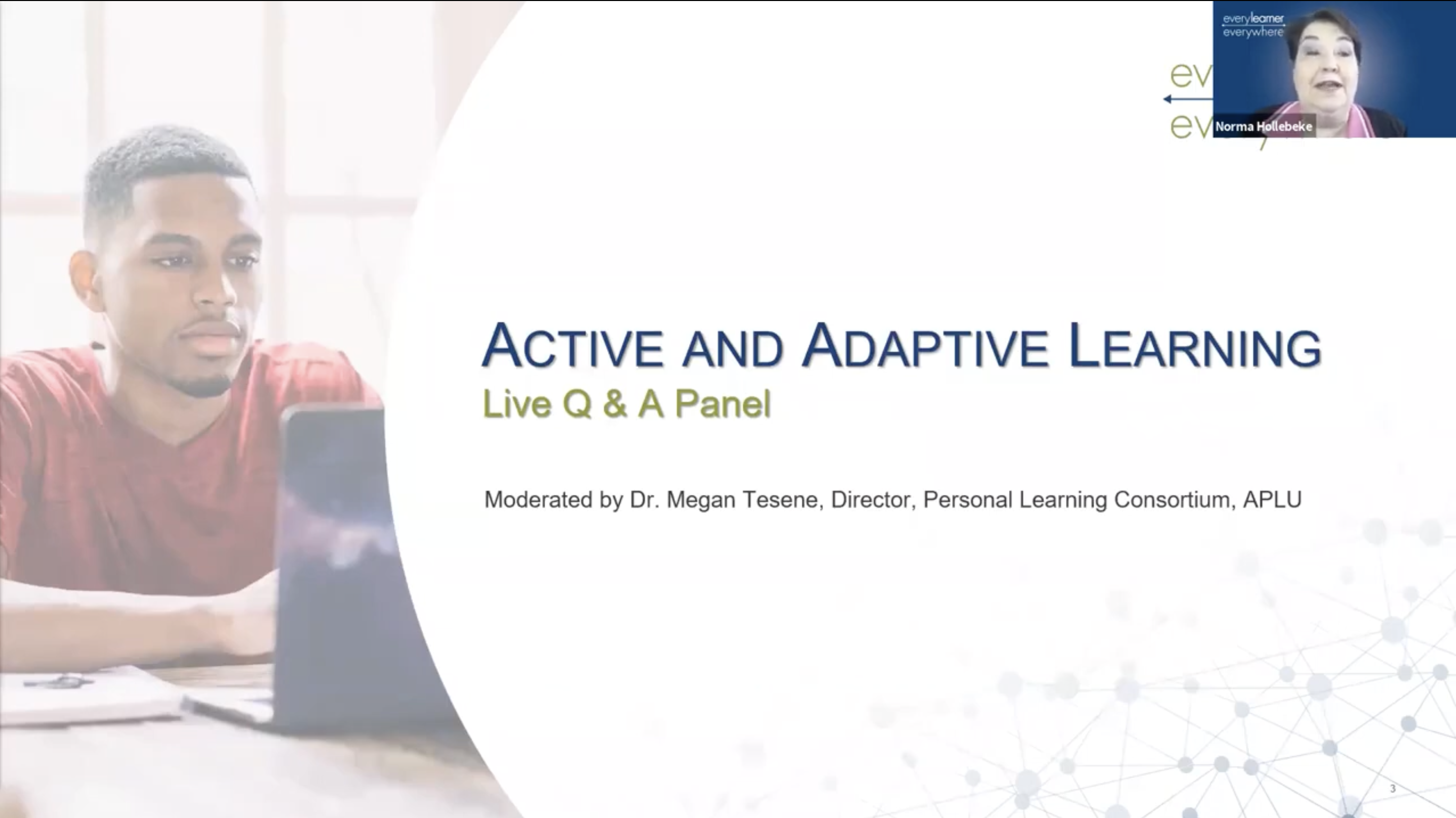
Active and adaptive learning strategies can engage students in blended and online environments, resulting in improved student outcomes and success.
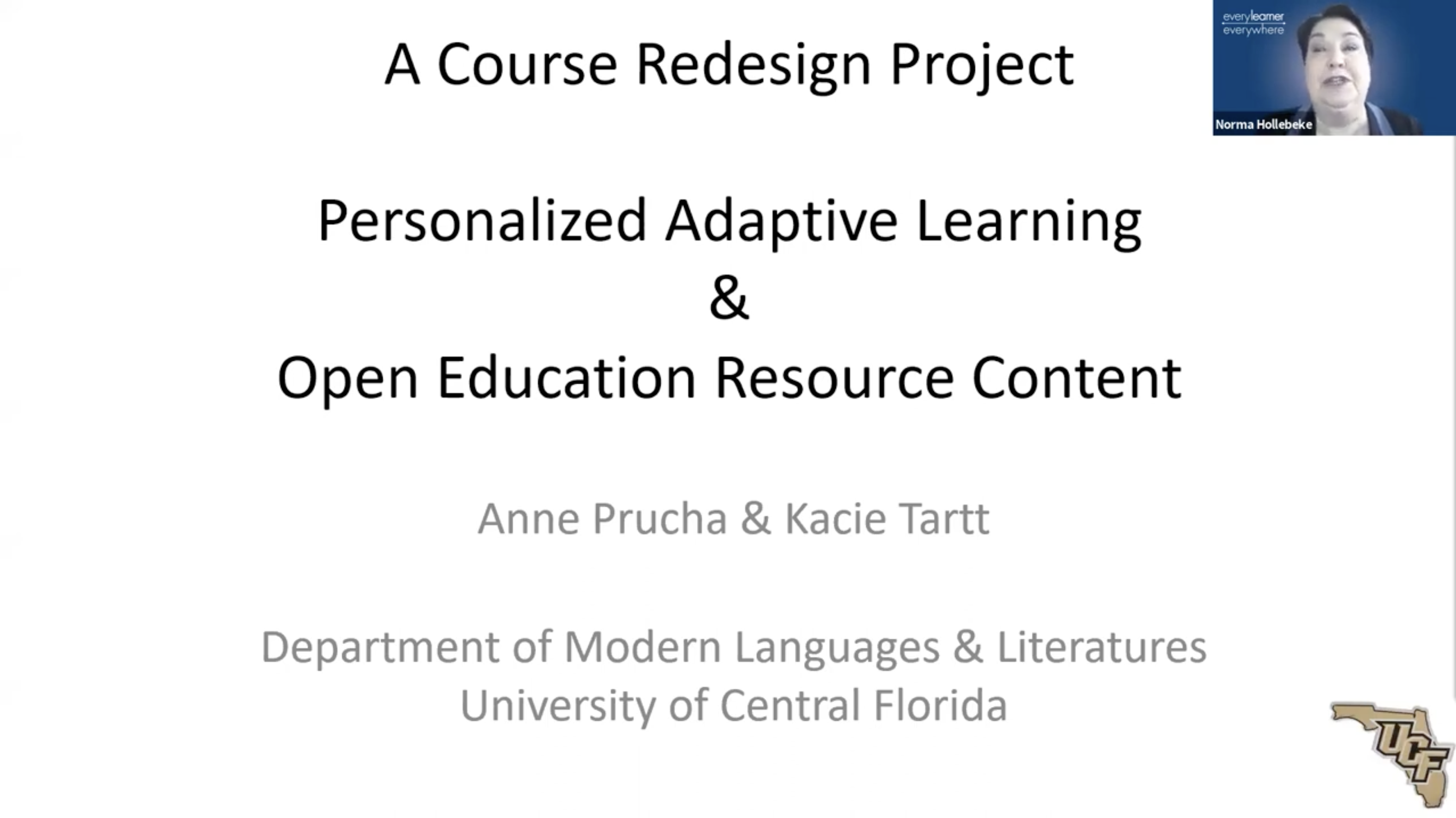
Instructors share their experiences in redesigning Elementary Spanish through a university initiative focused on increasing student success in gateway courses.
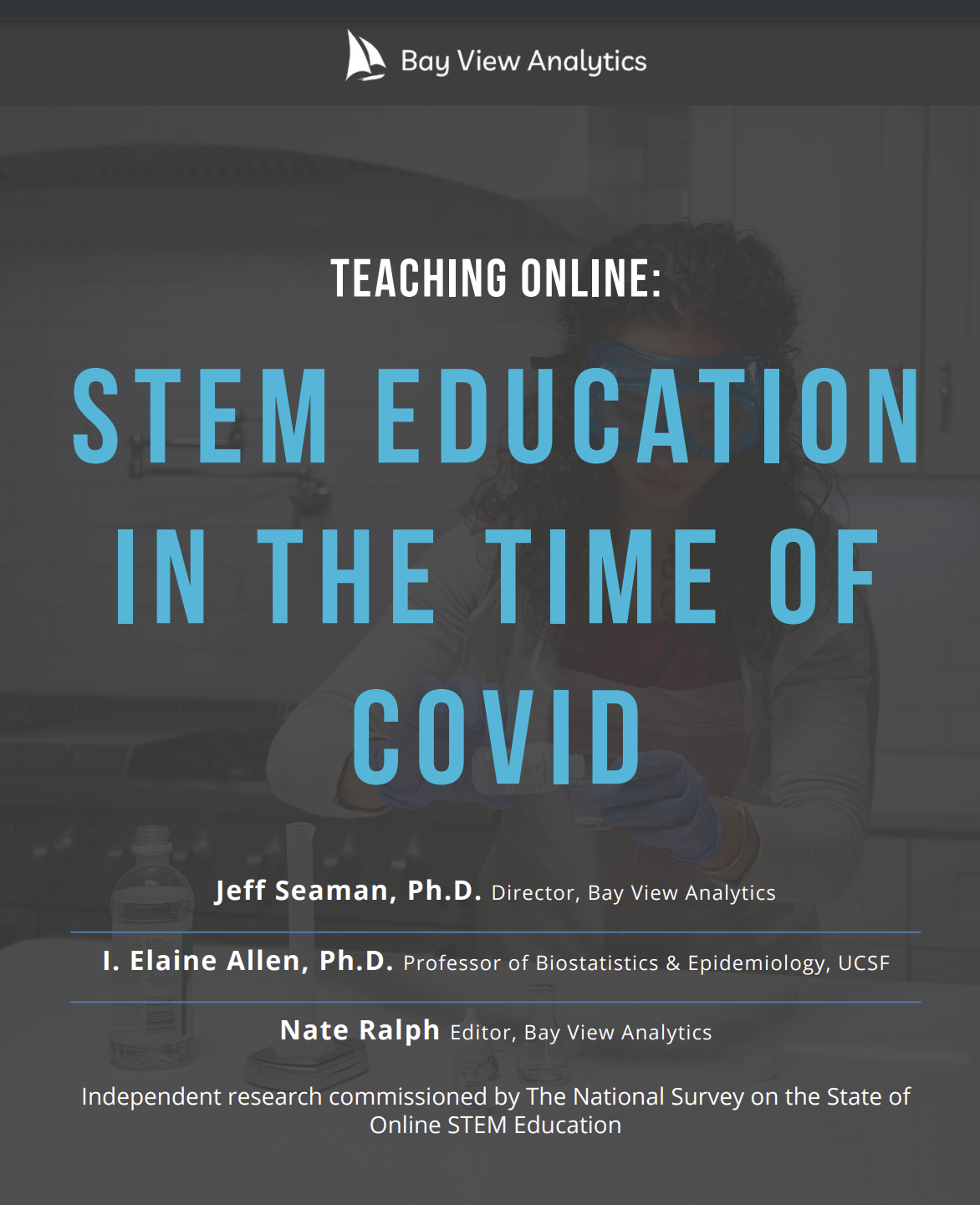
This fall 2020 survey explores the impact COVID had on higher education faculty in STEM fields and how that experience informed their opinions of online education’s effectiveness..
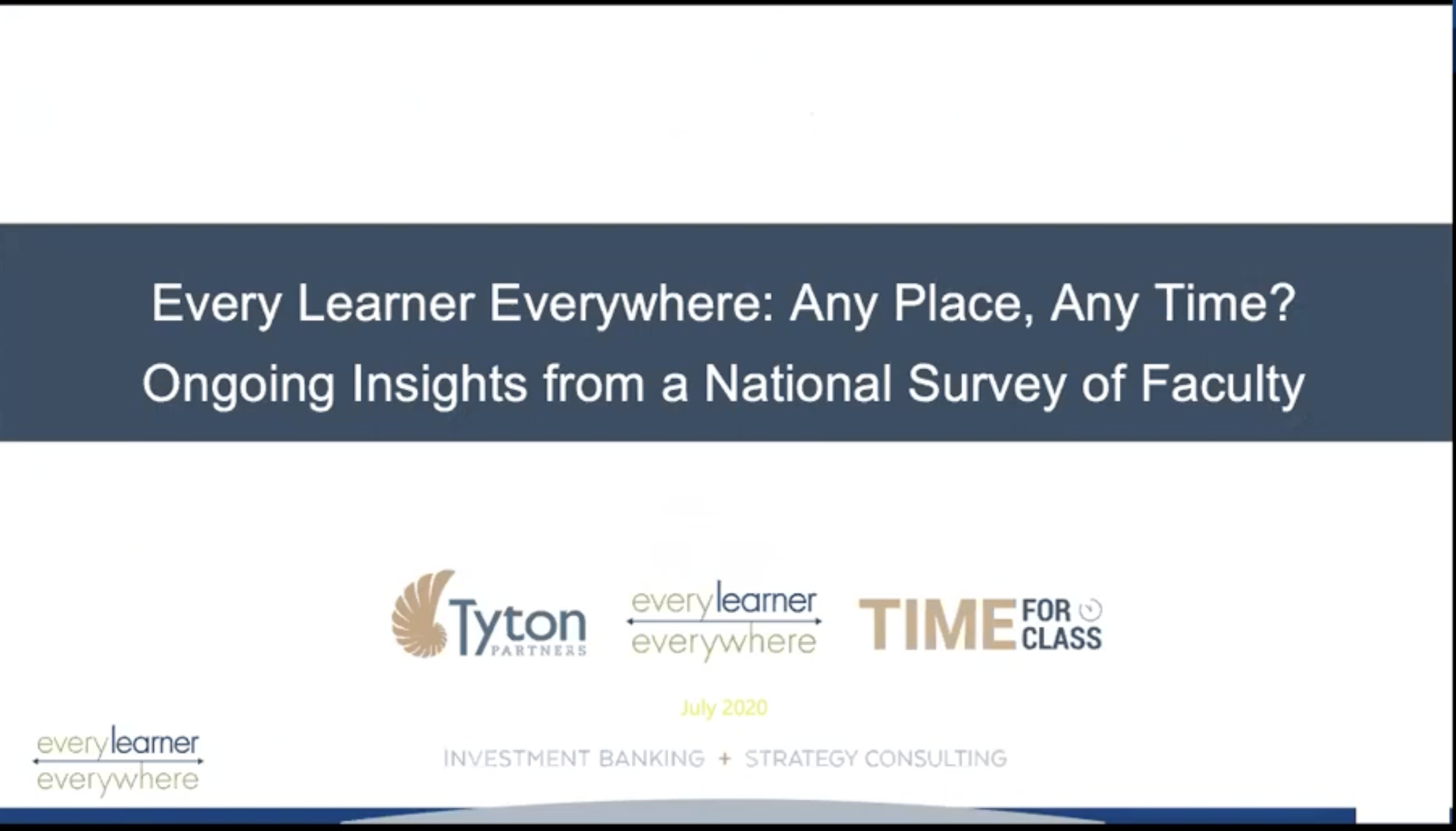
In this session we address key learnings about instructional practices and student learning outcomes, usage of digital tools and impact on faculty time, and share key challenges we must continue to confront as well as the strategies faculty and institutions are deploying to better ensure that every learner everywhere is able to learn.
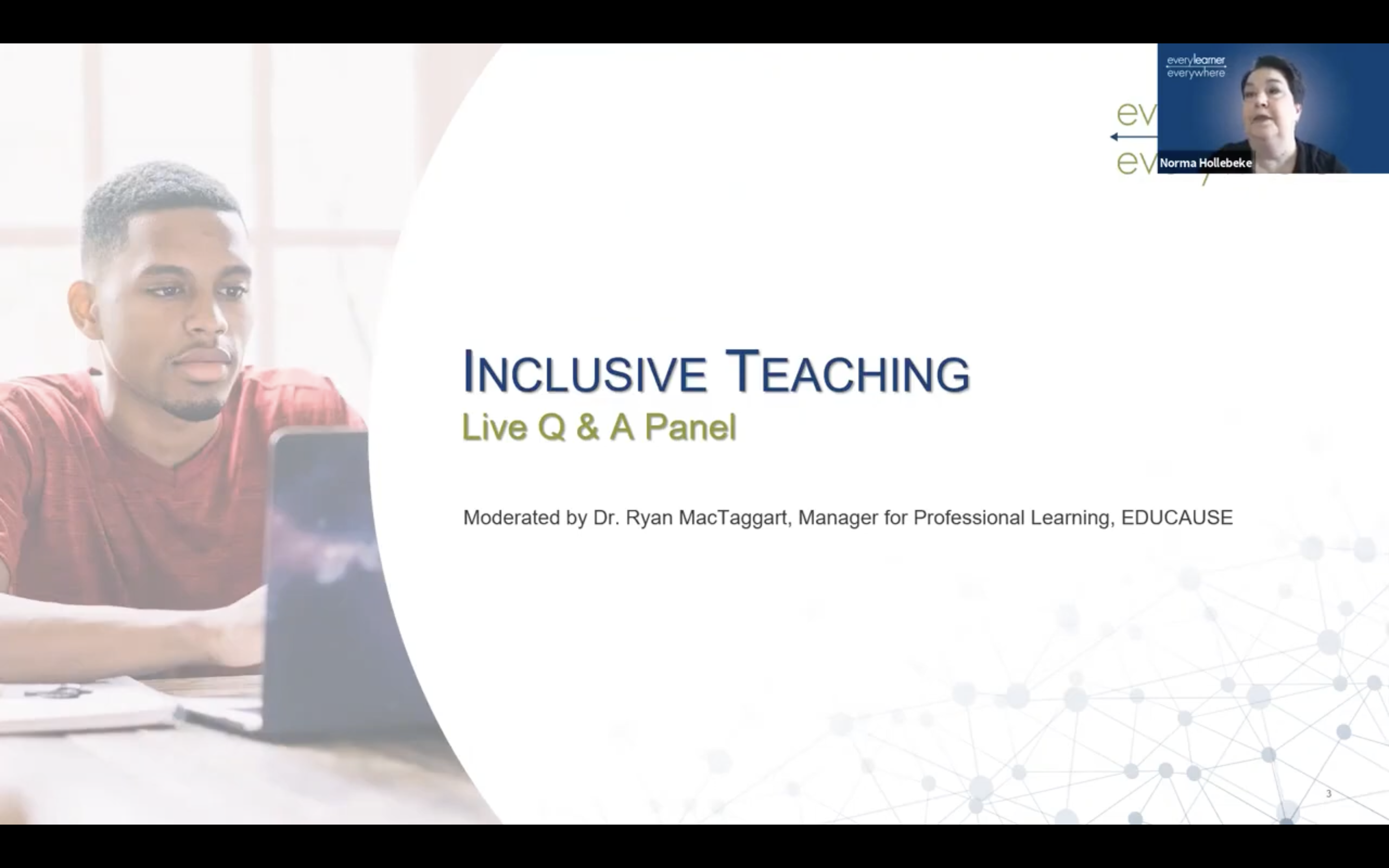
In this live Q&A panel, participants engage with Every Learner Everywhere Expert Network professionals to discuss equitable and inclusive teaching practices and digital learning to foster student-centered learning.
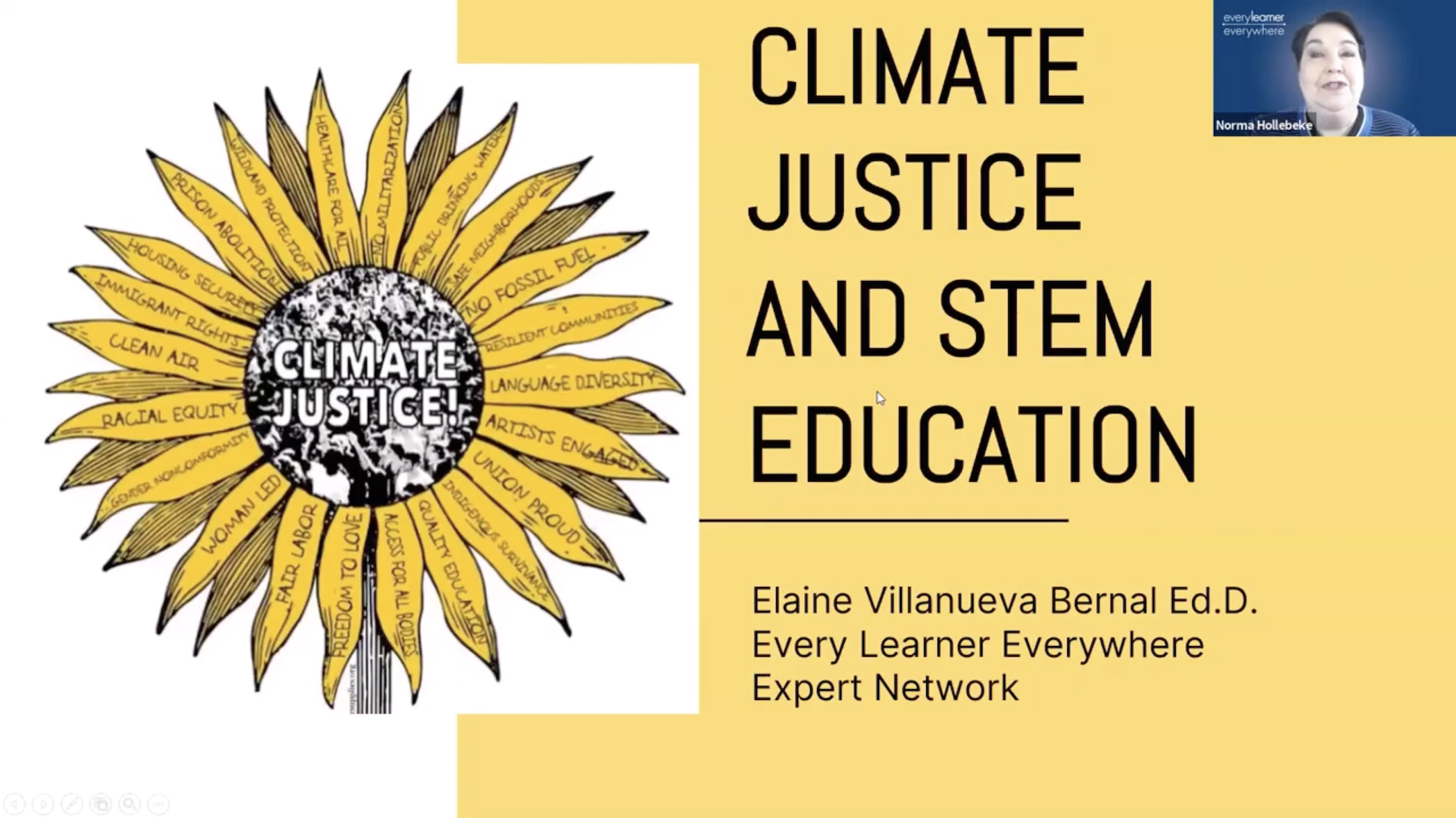
This session facilitates participant discussion on how to connect local environmental and climate justice issues to STEM concepts.
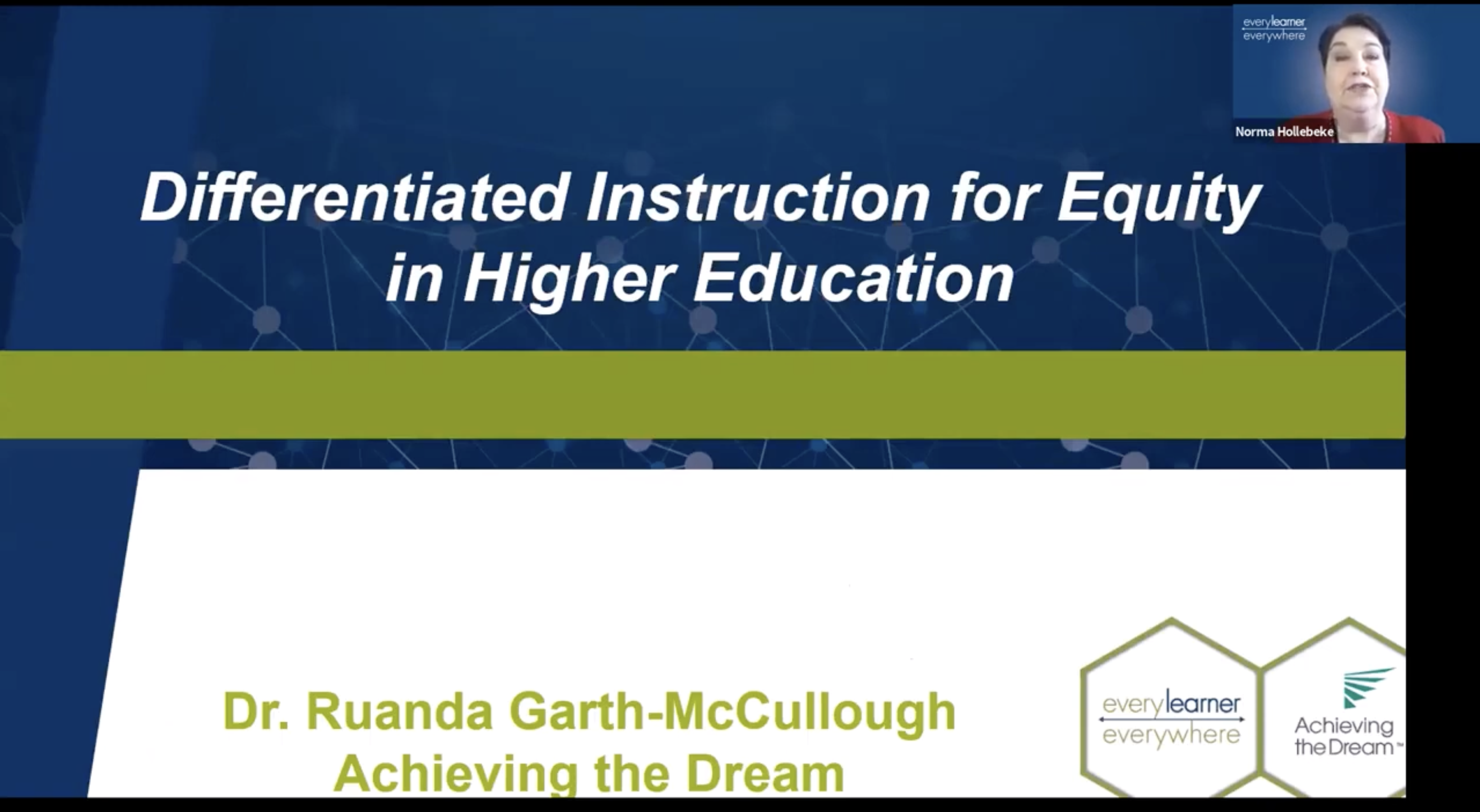
An overview of strategies and tools that engage students’ prior knowledge and supports their performance by differentiating the content, process and assessments.
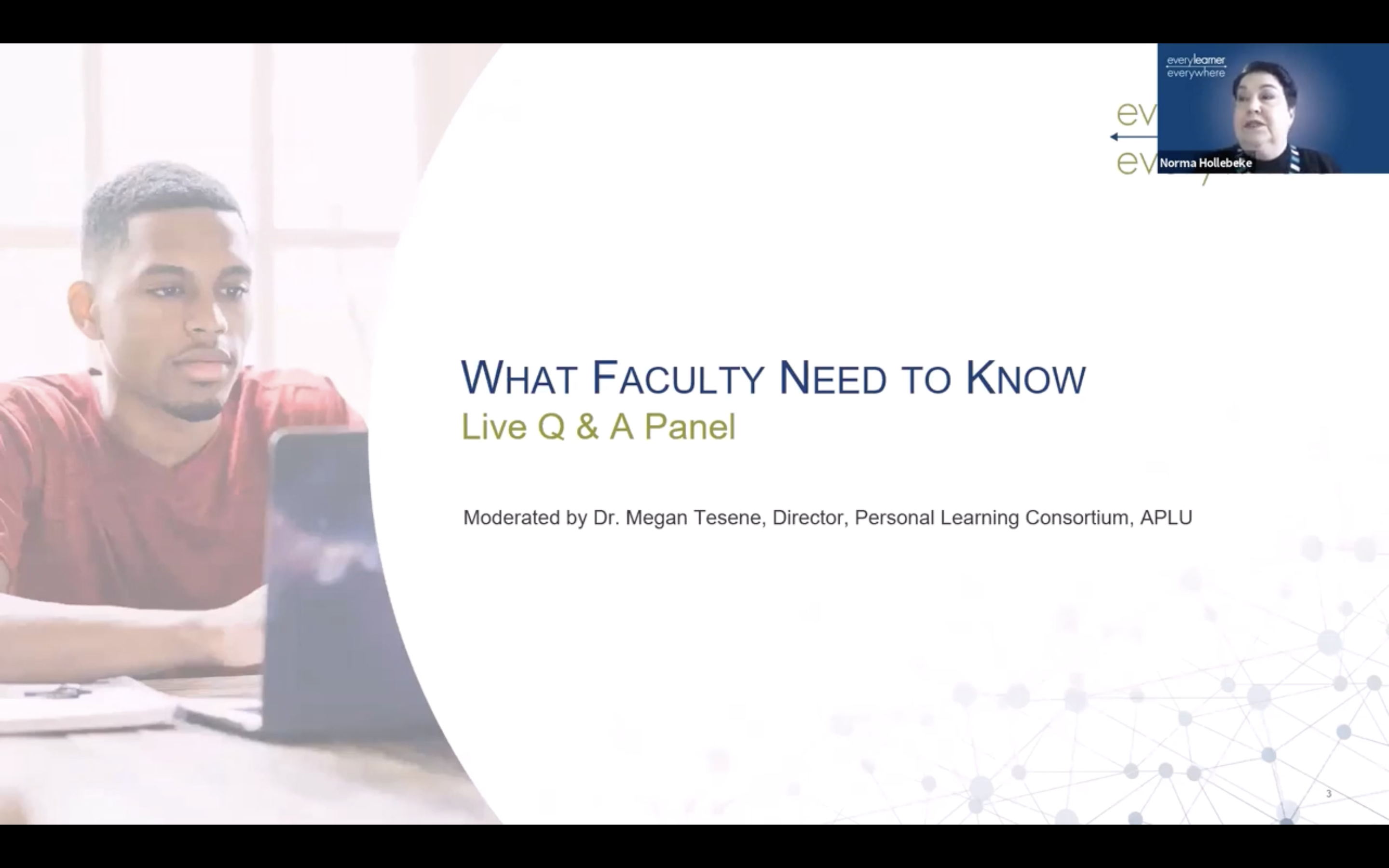
In this live Q&A panel, participants get answers to their remote teaching questions.
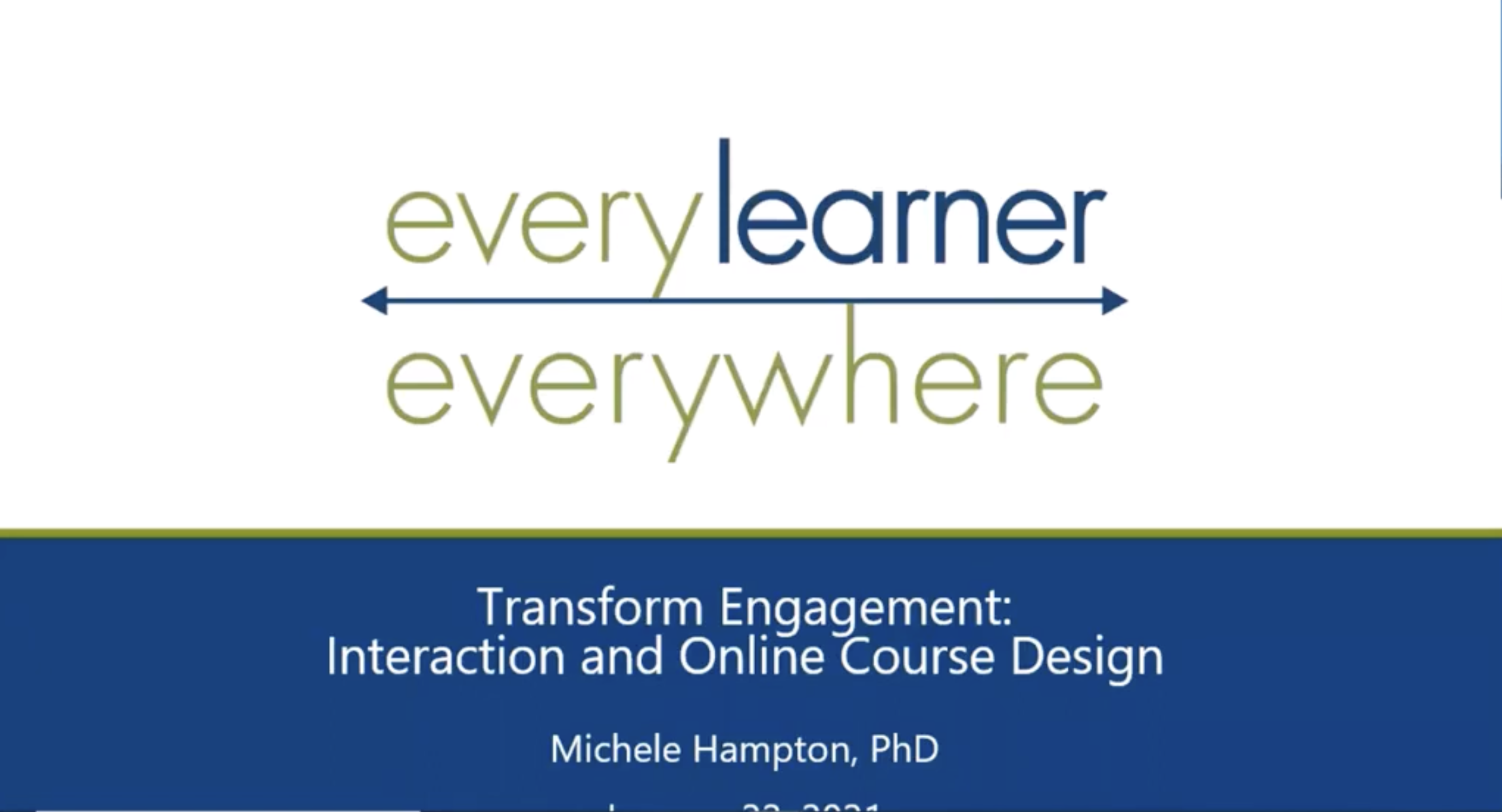
Rich media tools and thoughtful student-student, student-teacher, and student-content interactions can be powerful tools in online course design that inform “how we teach” and underpin successful use of technology in the online learning environment.
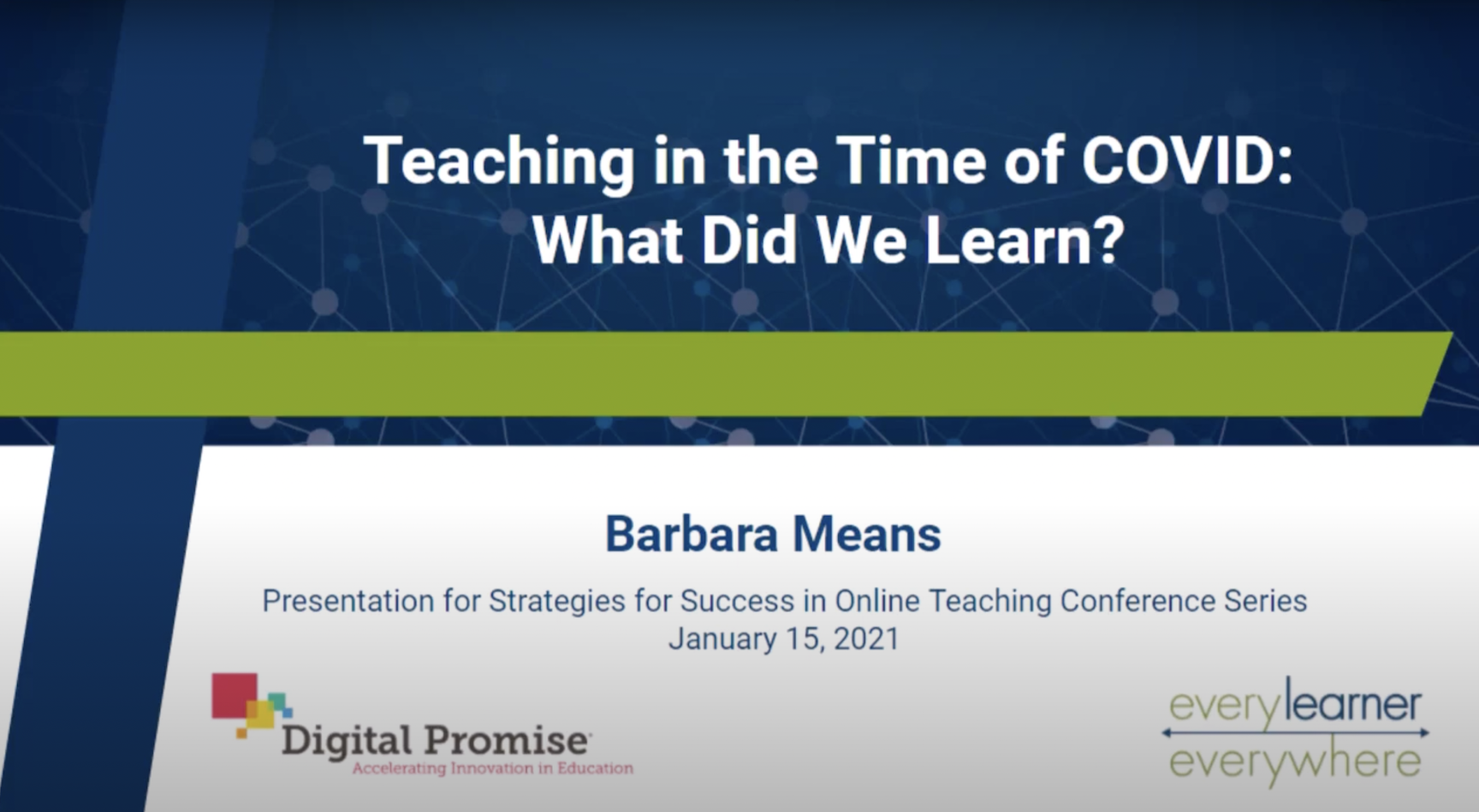
Insights on teaching in a time of Covid from Digital Promise’s Survey of Student Perceptions of Remote Teaching and Learning in May 2020.
A virtual educator professional development session led by Cherise McBride with reflection on the urgency of humanization in online learning environments and examples from practice.
A brief exploration on how faculty can position cultural knowledge and centering identity as a cognitive tool.
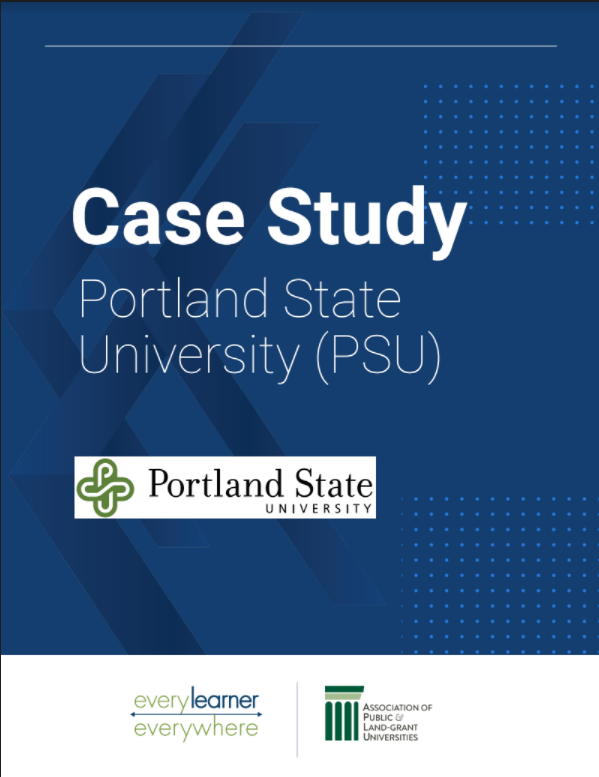
Combining active learning with adaptive courseware leads to a statistically significant reduction of DFW grades in foundational courses.
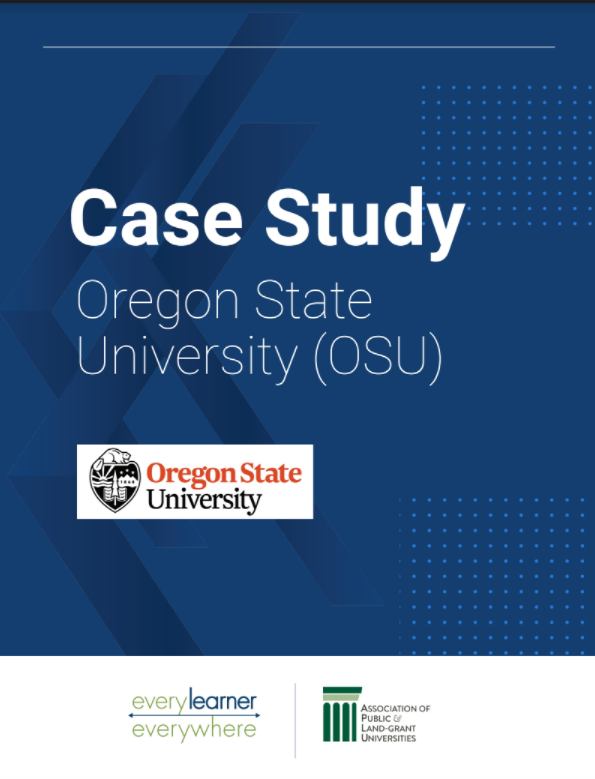
Stakeholder engagement and close collaboration important to the adaptive courseware implementation process.
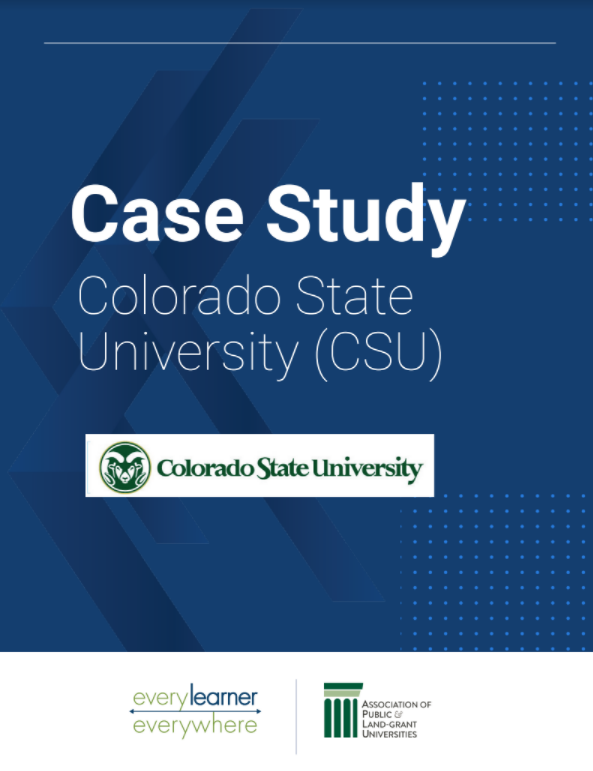
A case study at Colorado State University (CSU), found the use of active learning and adaptive courseware, along with an intentional faculty development program, are key in the implementation of adaptive courseware.
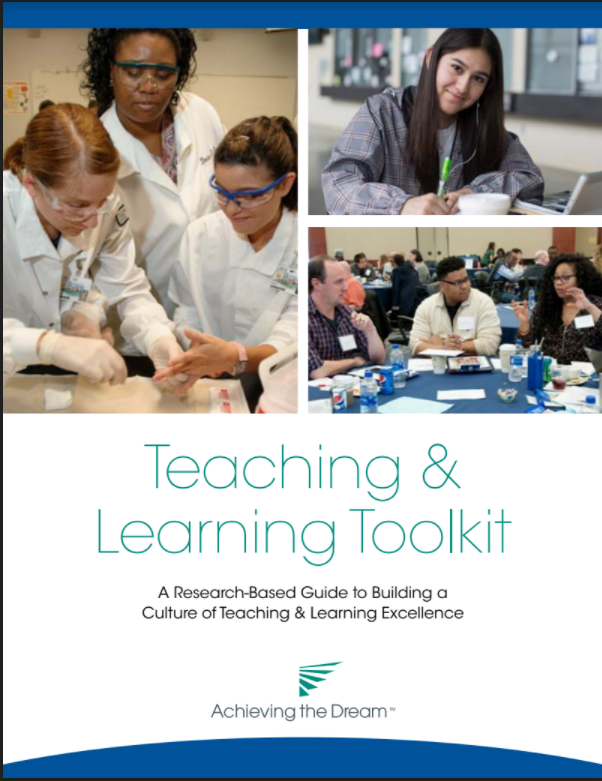
Grounded in research, this resource supports college teams in building institutional capacity in teaching and learning.
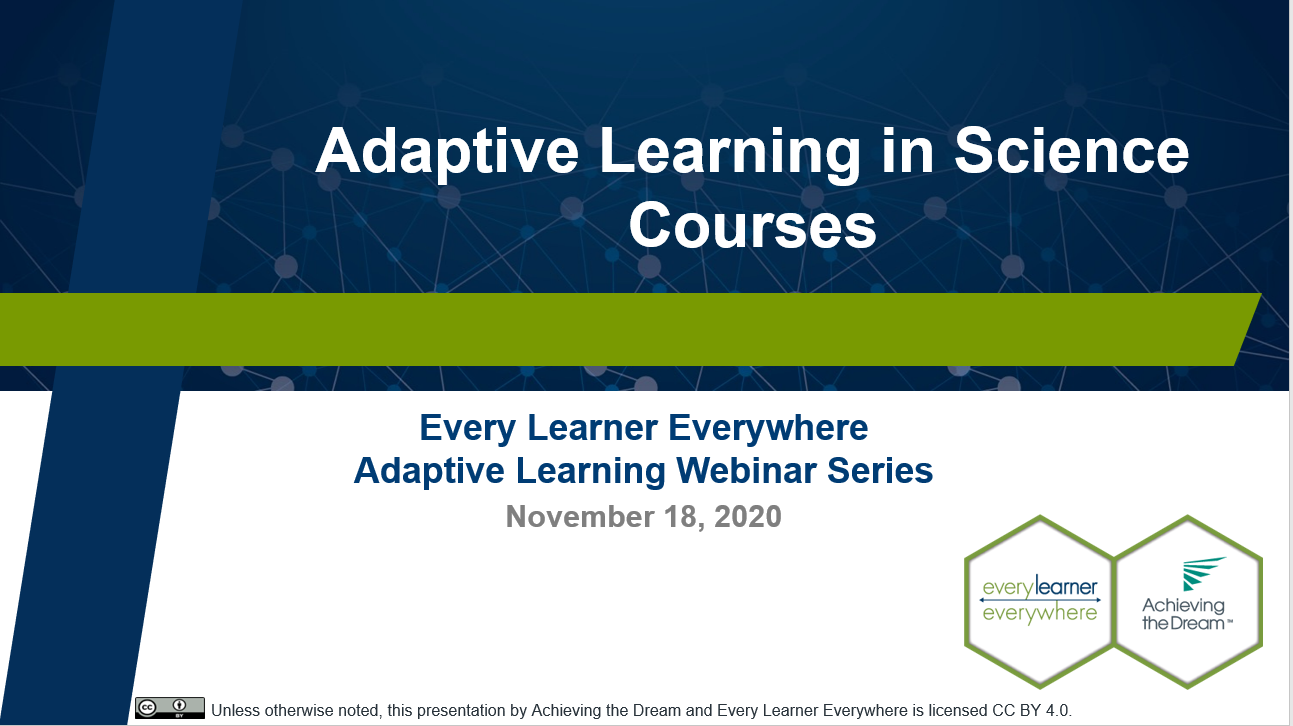
Faculty discuss adaptive learning in science and how tools and practices can transform courses to increase student success.
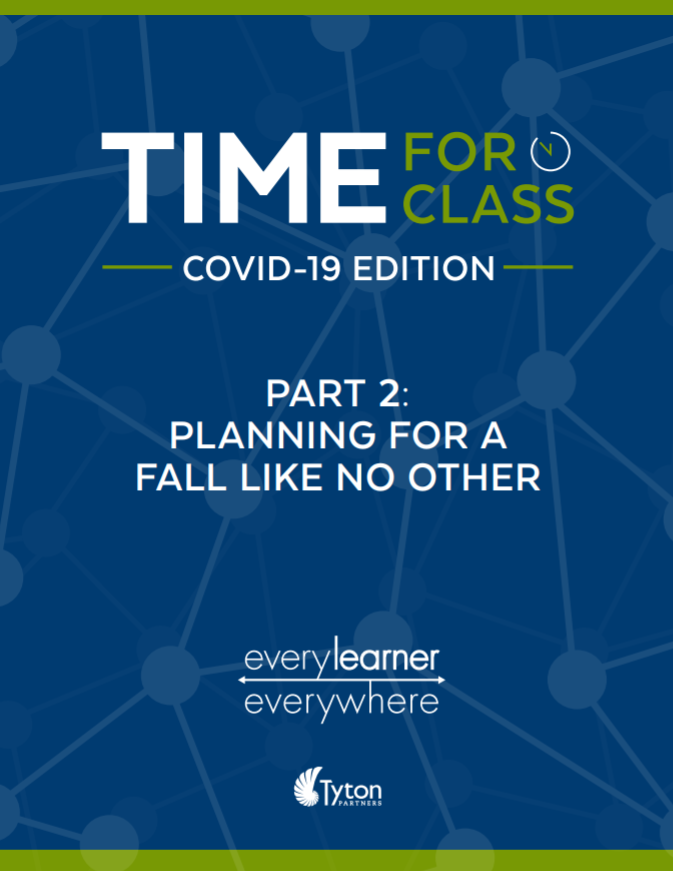
This is the second report in an ongoing series designed to understand the ongoing impact of the COVID-19 pandemic on teaching and learning in higher ed.
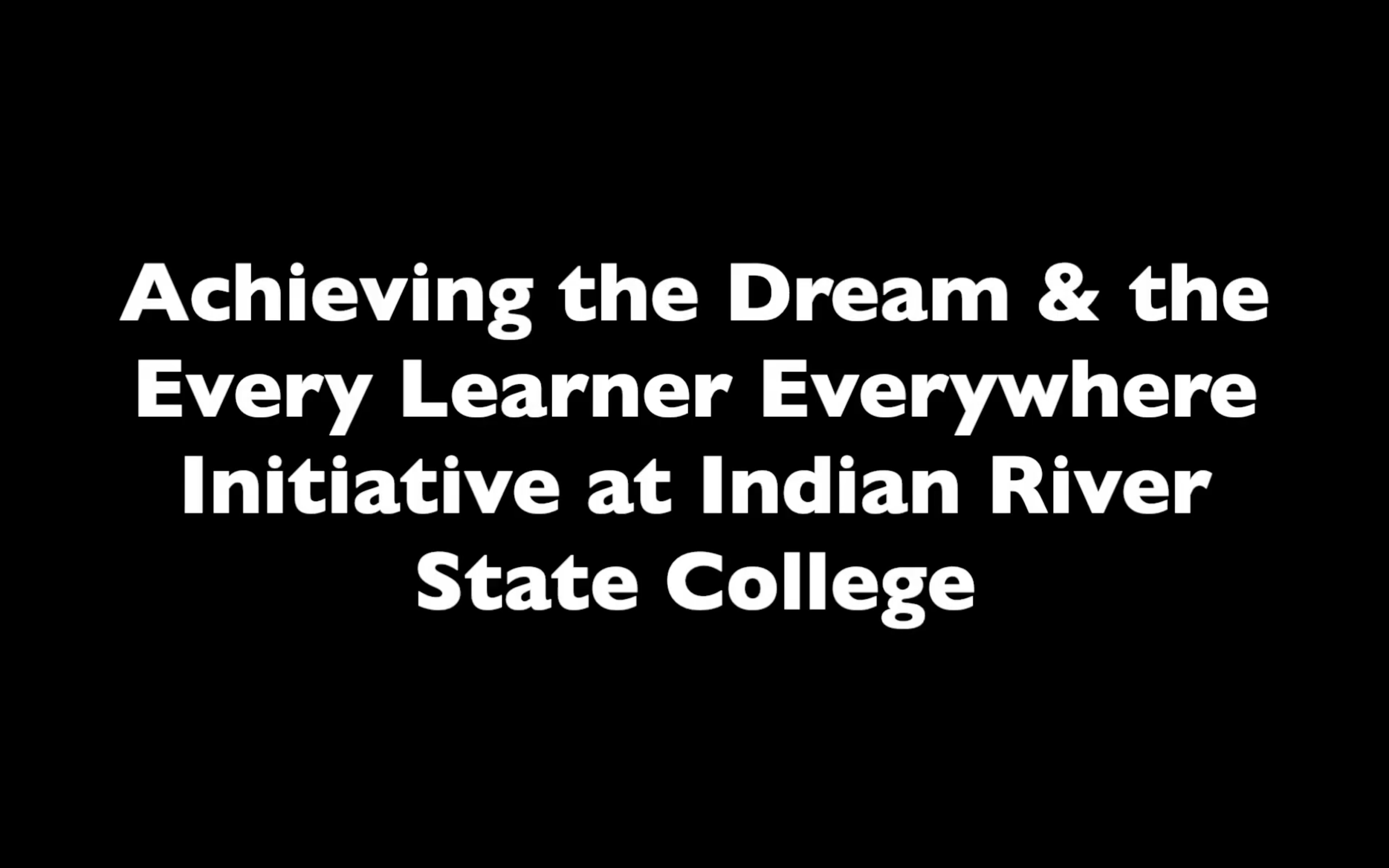
Faculty and administrators at Indian River State College discuss transitions to adaptive learning during the 2019-2020 school year.
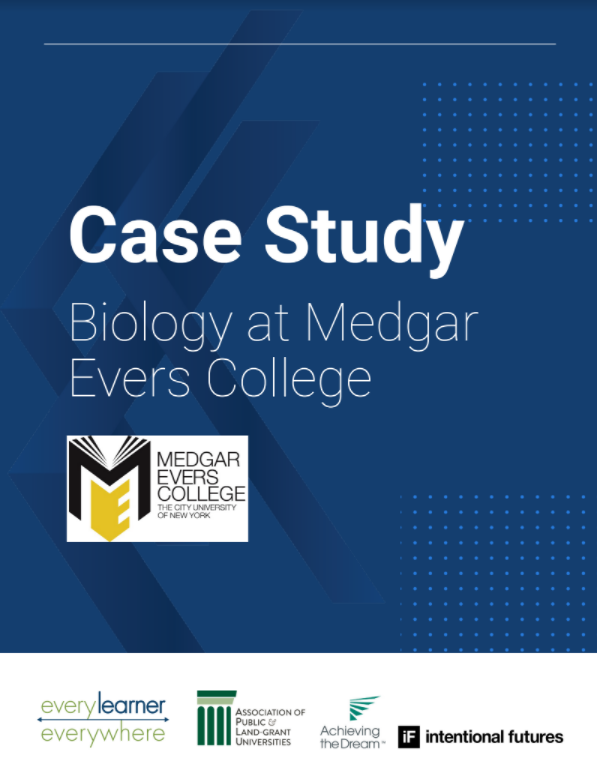
This case study looks at how active learning and learning analytics can improve student success in biology courses.
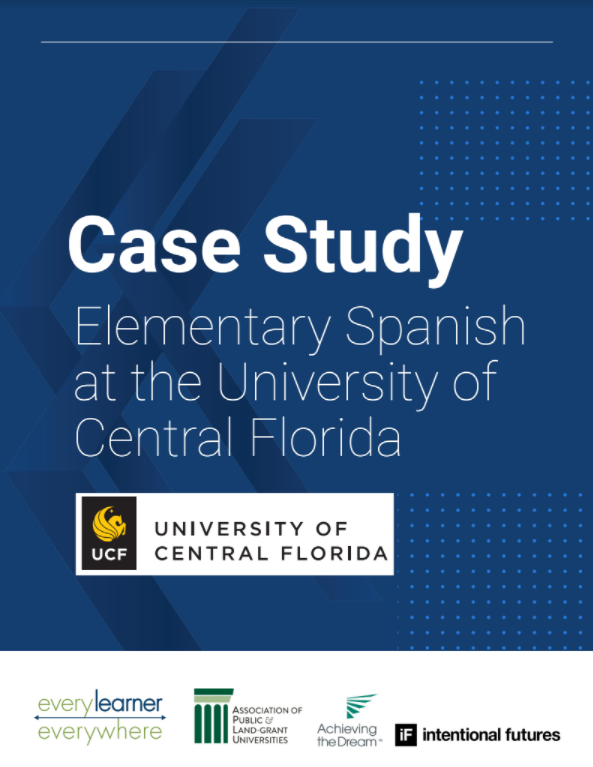
This case study on elementary Spanish looks at how to customize a course for a students by involving them in review and updates.
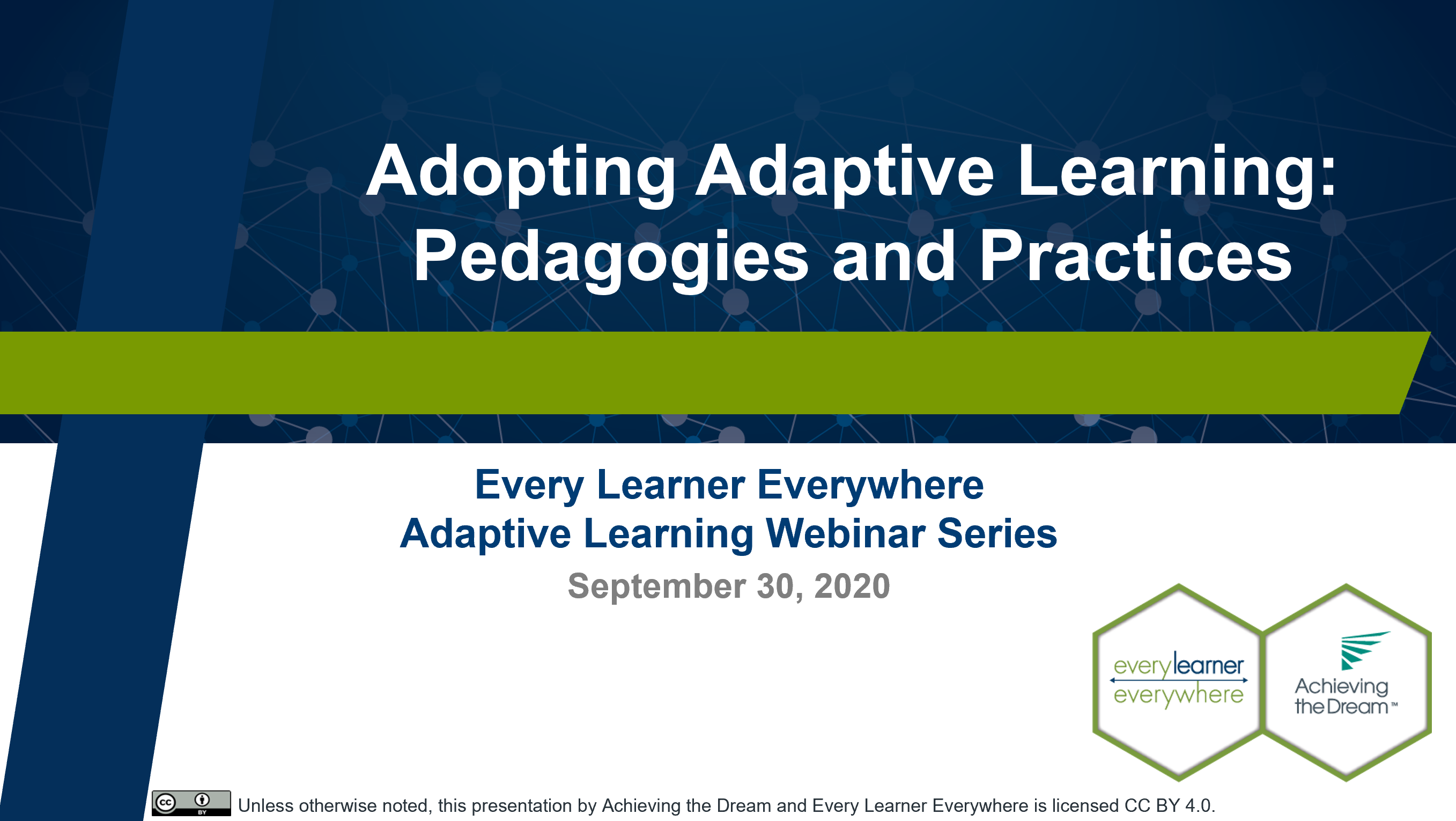
Faculty discuss how they’ve brought adaptive learning into their courses, and how it has altered teaching and learning for them and their students.
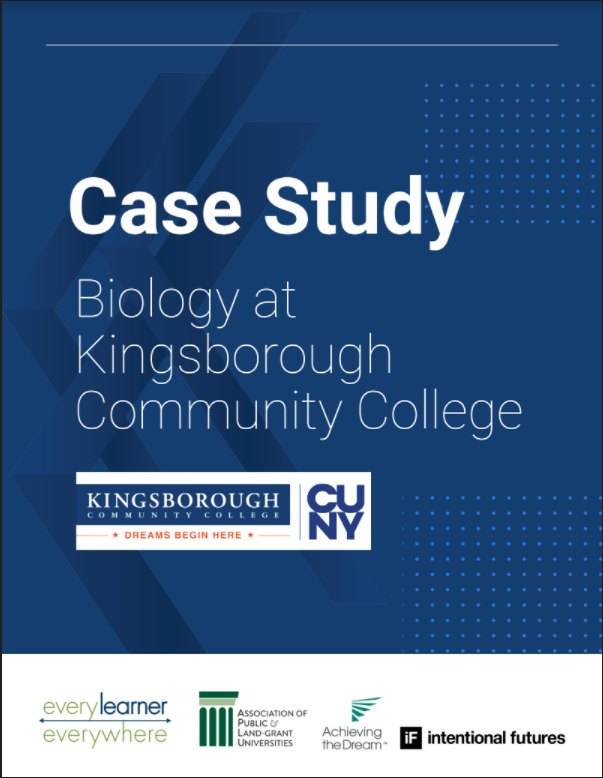
This case study looks at how biology students can make test bank questions relevant by co-writing them
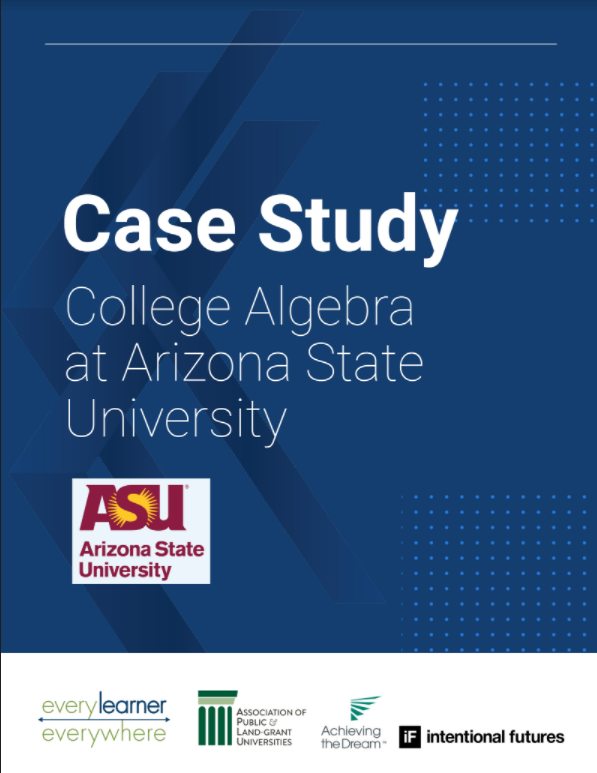
This case study looks at removing barriers and increasing student success in college algebra.
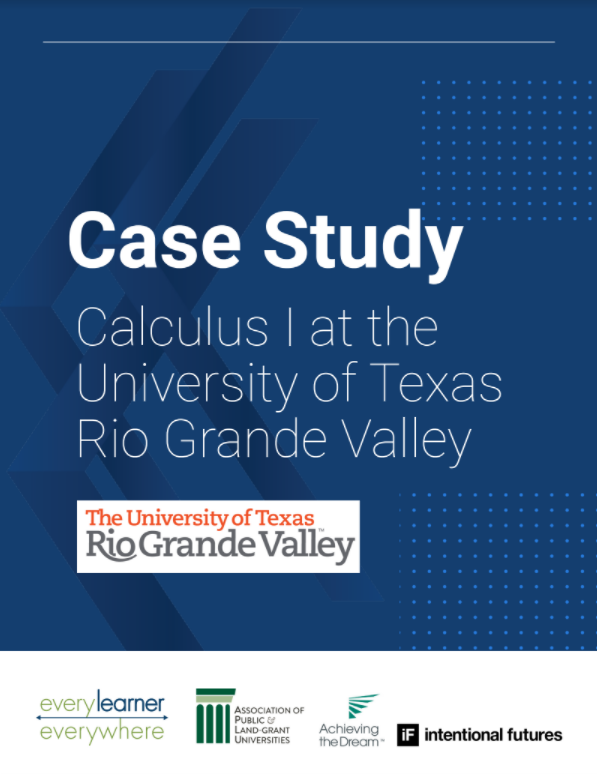
This case study looks at how Calculus faculty are improving student success through multi-section coordination.
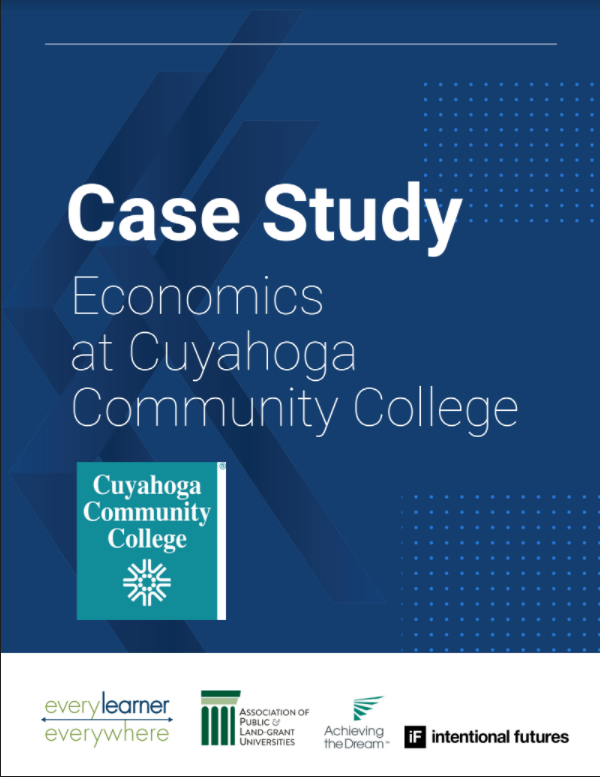
This case study looks at how one professor is increasing Course Success in economics through Student Engagement and Active Learning.
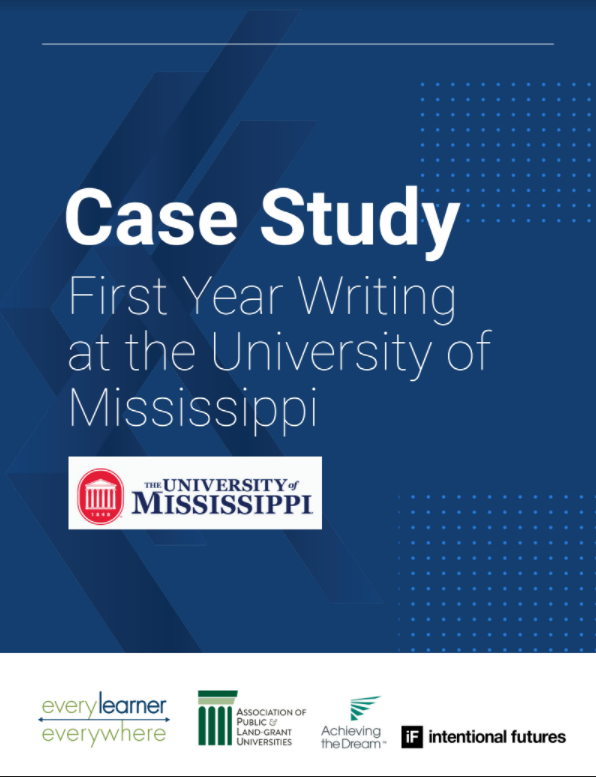
This resource provides suggestions for breaking down those barriers to international students in online learning.
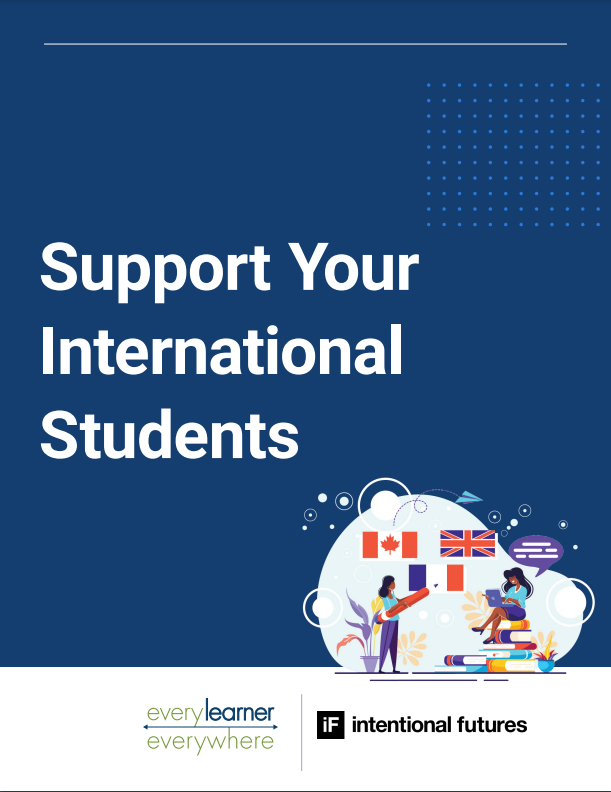
This resource provides suggestions for breaking down those barriers to support international students in online learning.
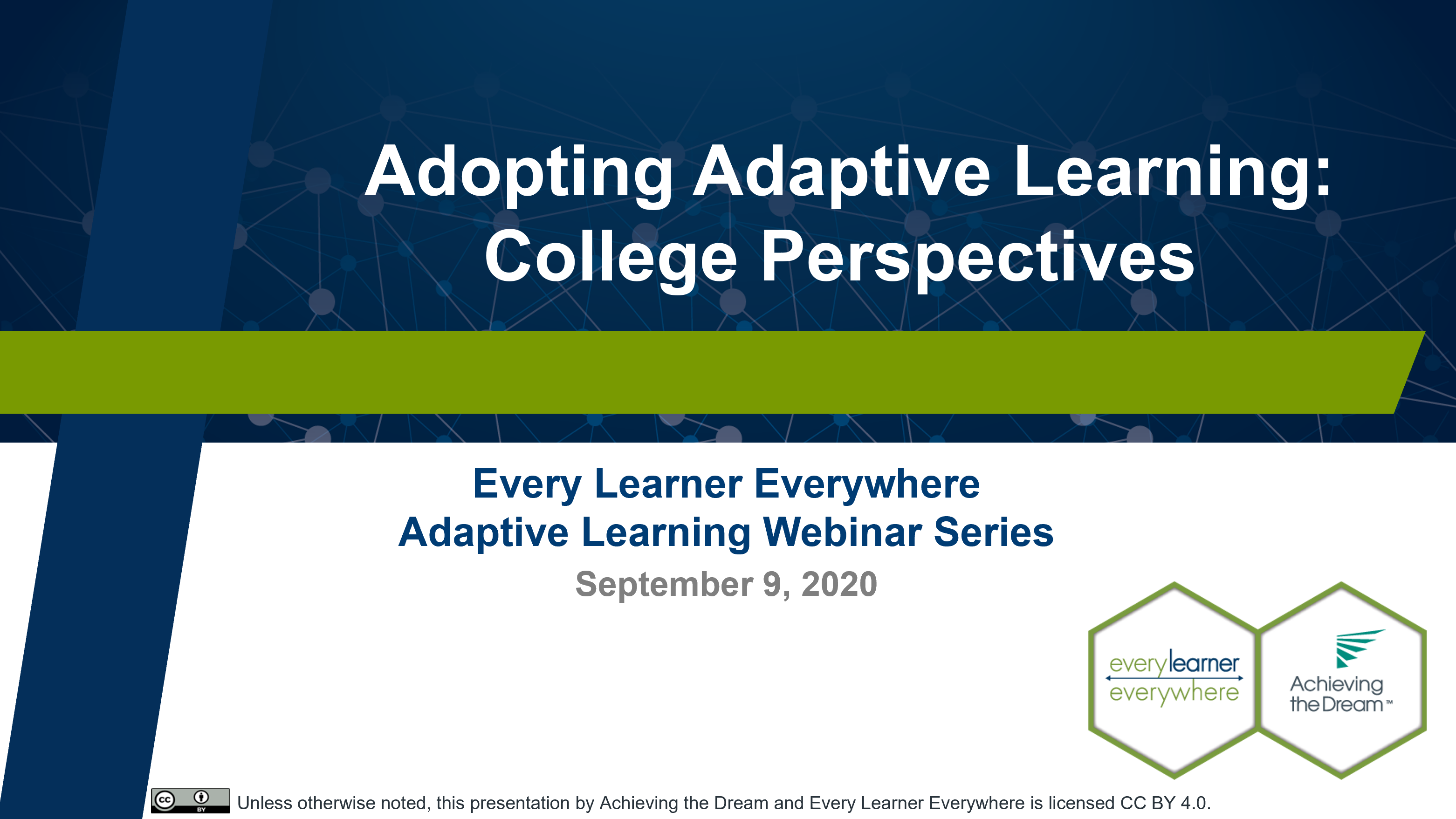
Faculty and staff from various ATD colleges share their experiences implementing adaptive learning at their colleges
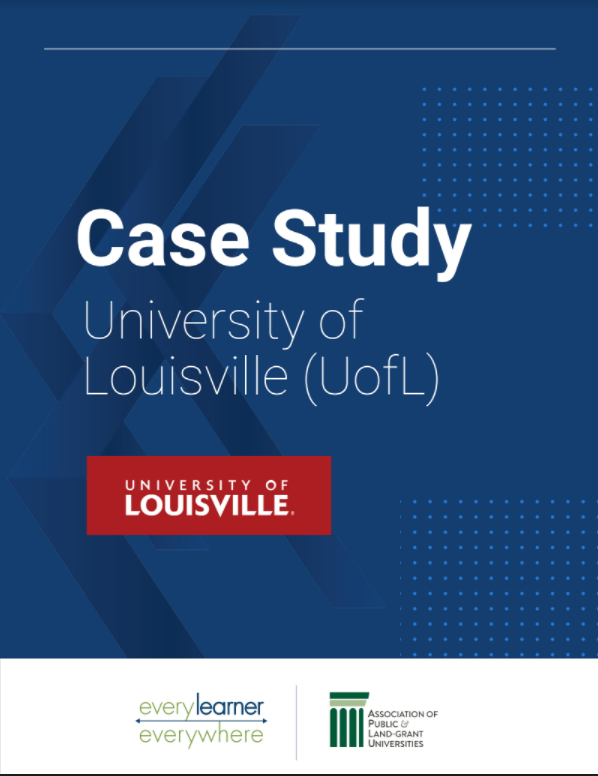
This case study from the University of Louisville demonstrates their approach to leveraging adaptive courseware to improve course design.
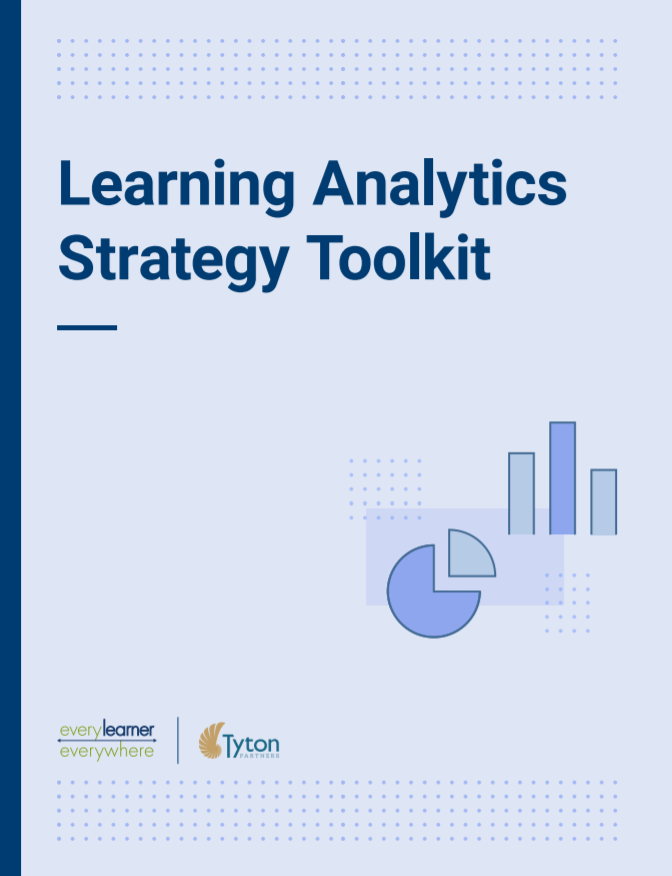
For all students to have an equal opportunity to succeed, instructors must personalize learning rather than teach to a fictional average student. Learning analytics has the potential to assist instructors …
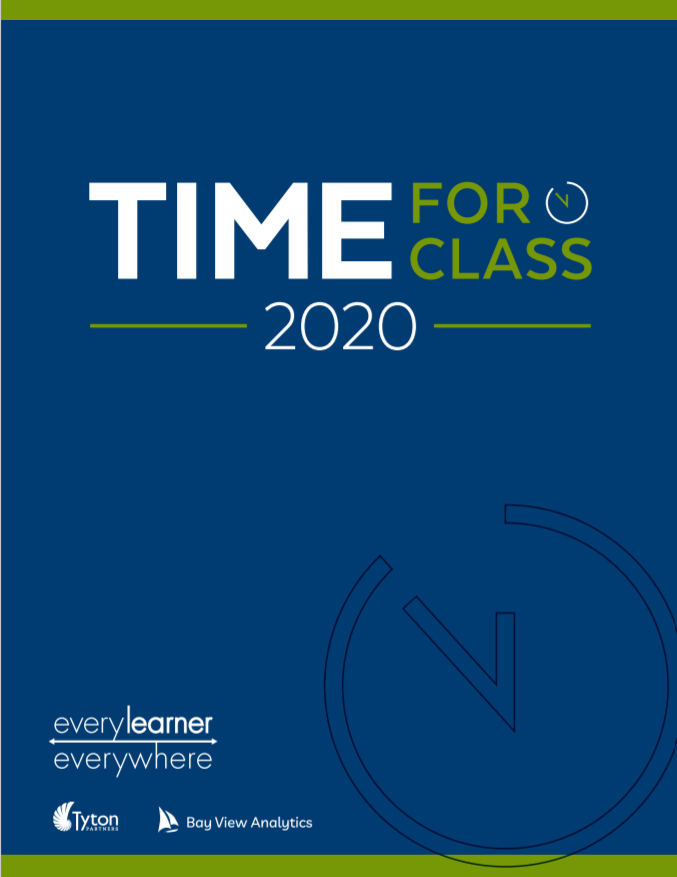
This survey is designed to help higher education stakeholders gain an understanding of digital learning tools for increasing affordability and accessibility for students.
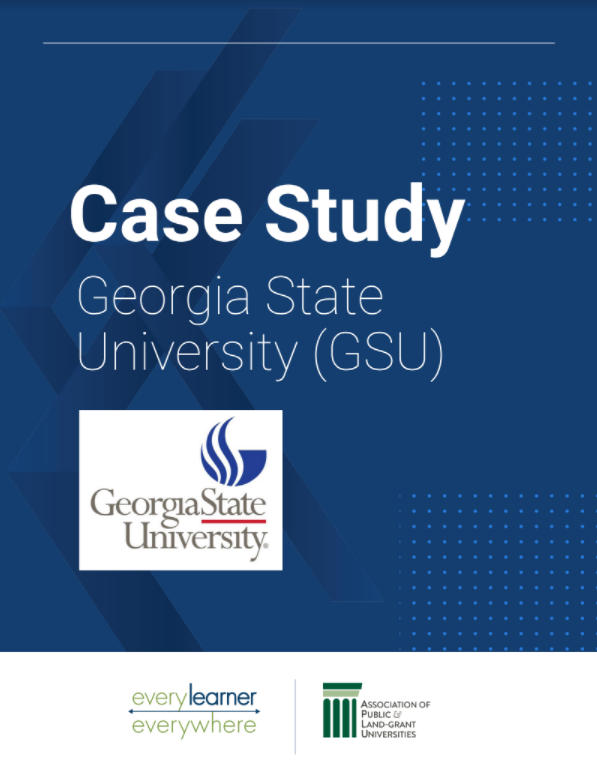
This case study from Georgia State University demonstrates their approach to scaling adaptive courseware and the effective use of analytics.
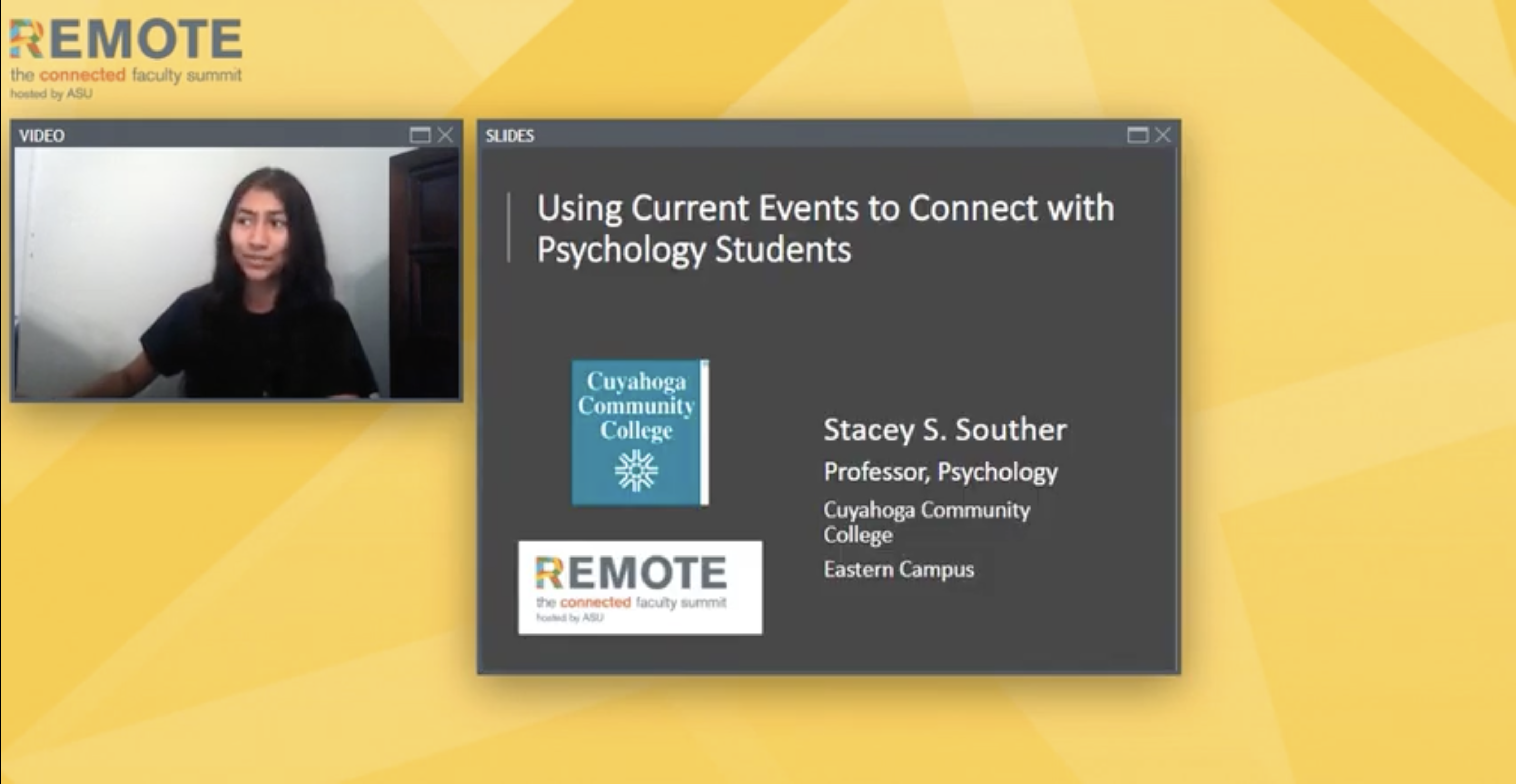
Introductory psychology faculty discuss how they utilize current events and Flip Grid to form relationships and apply content in remote teaching settings.
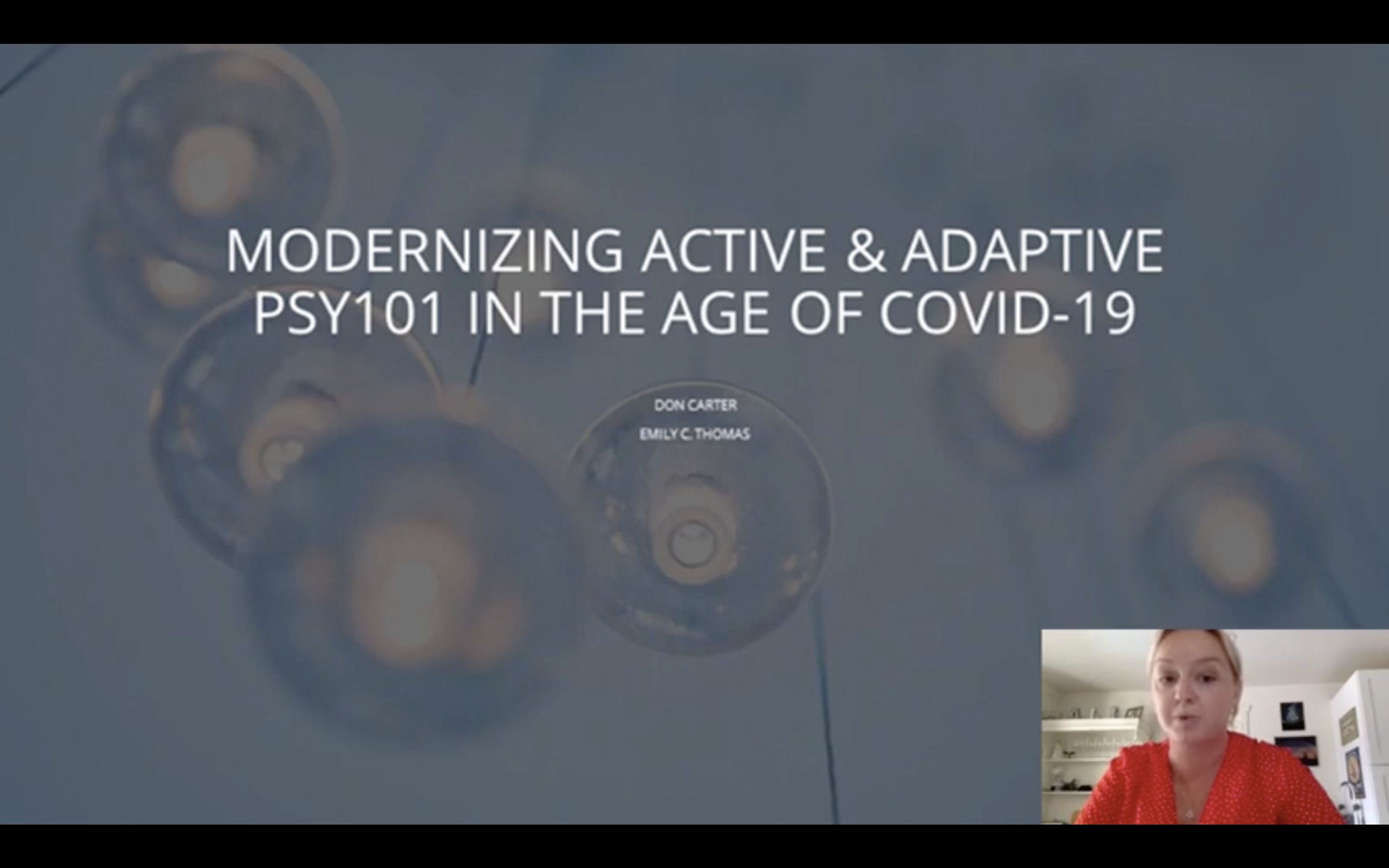
Digital learning specialists discuss the process of adopting and continuously improving courses with adaptive courseware.
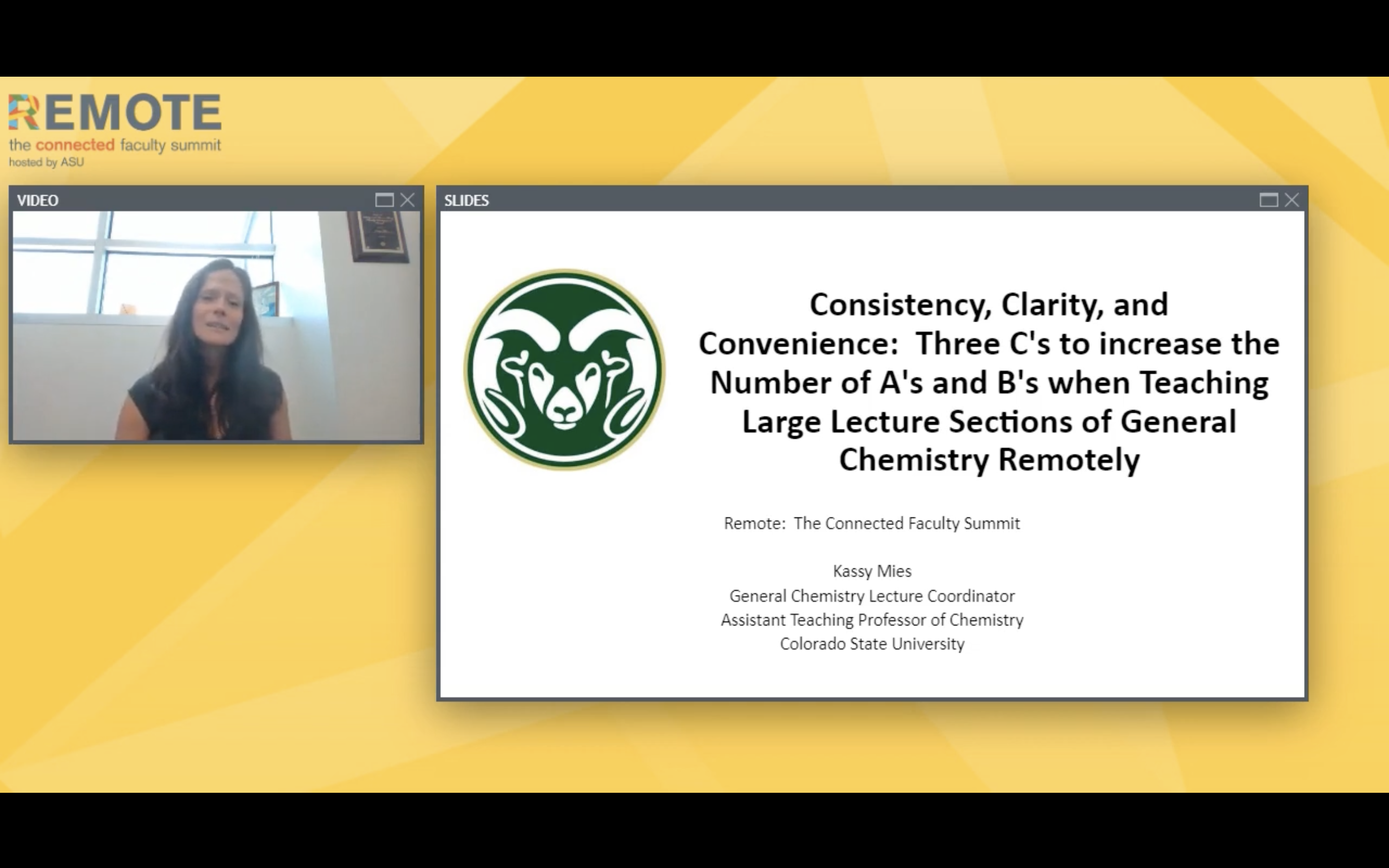
The three C’s to increase the Number of A’s and B’s when Teaching Large Lecture Sections of General Chemistry Remotely.
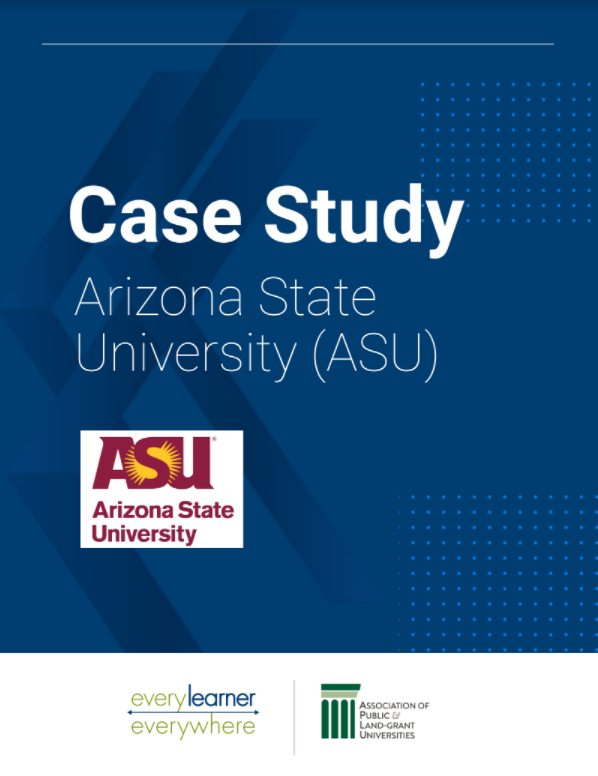
In this case study, Arizona State University shares the progress of their adaptive courseware implementation.
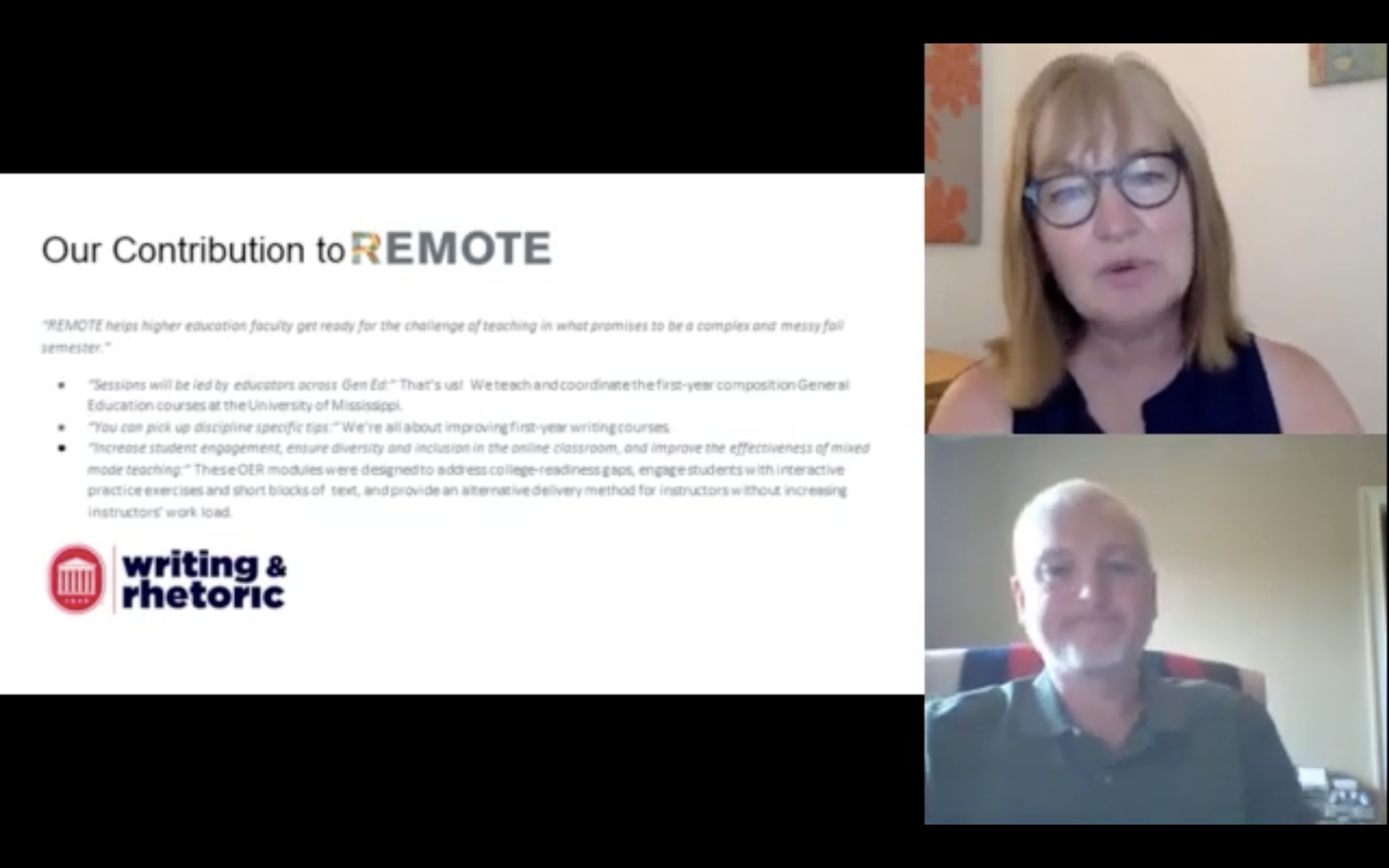
Faculty share how Lumen Waymaker was implemented in various classes, and how assessment data and workshops have enhanced learning material in first-year writing.
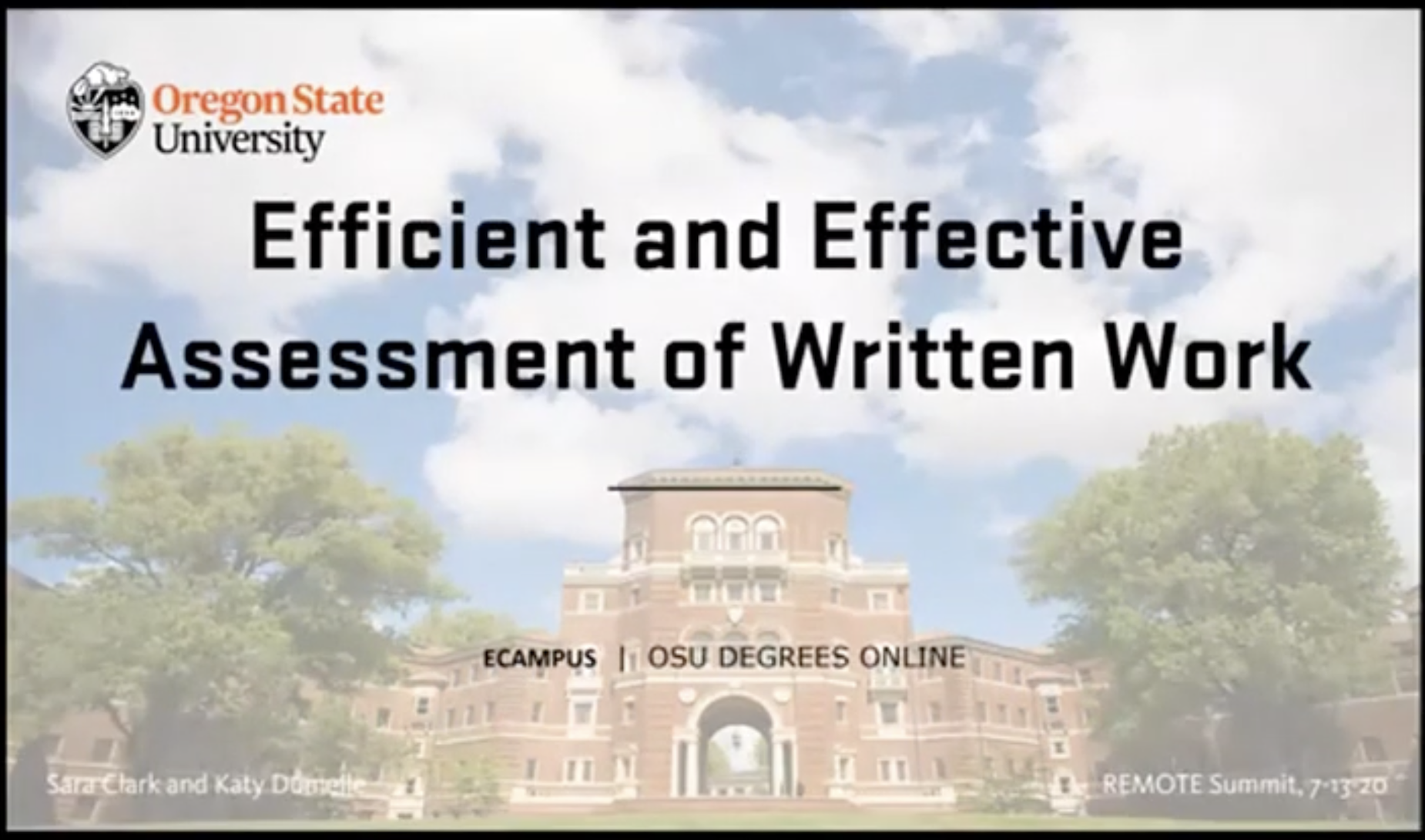
In this webinar, faculty provide tips and strategies for assessing written work in online or remote classes and discuss how that written work can promote student metacognition.
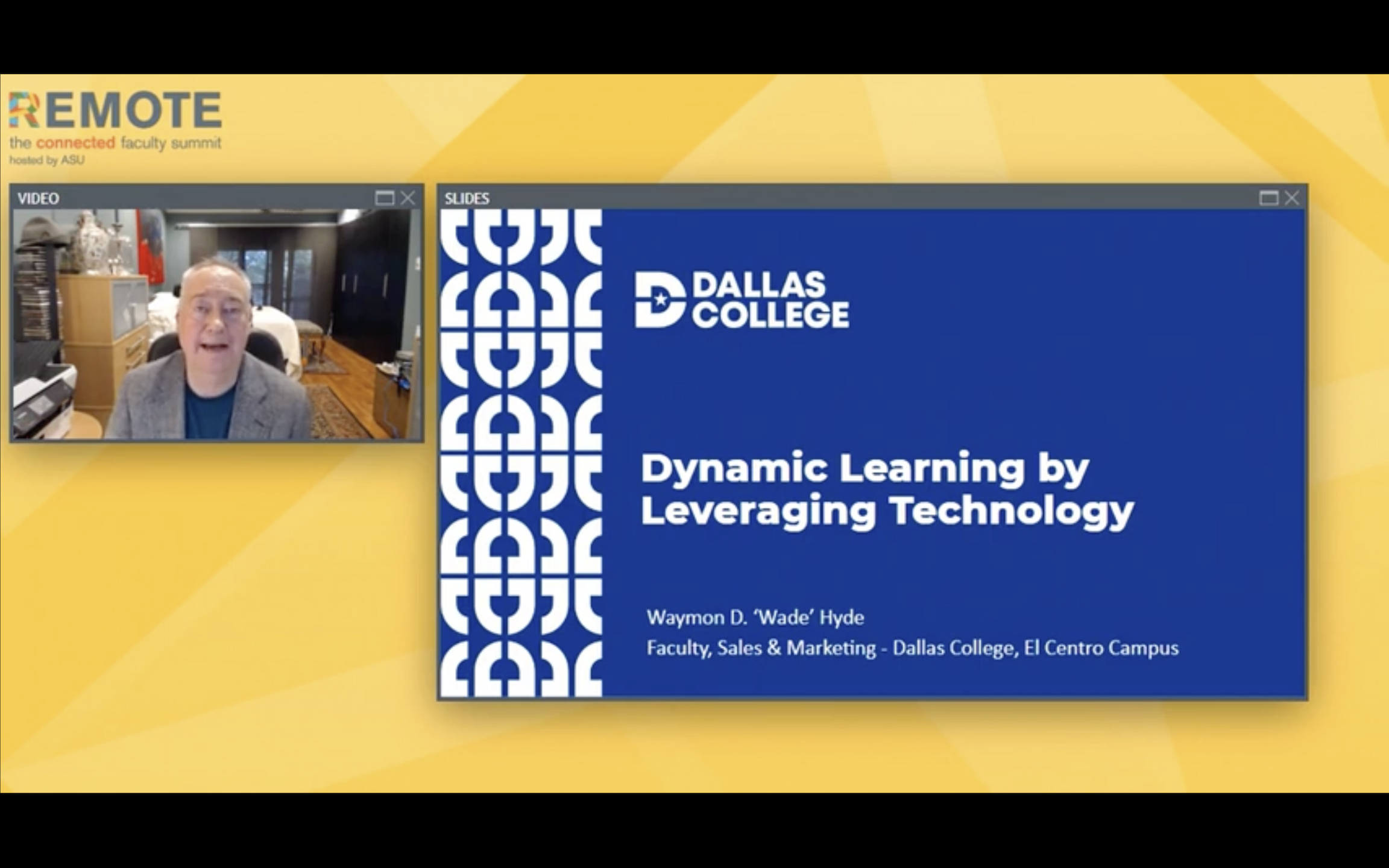
In this webinar, faculty discuss a variety of teaching and learning technologies, including Lumen Learning’s Waymaker, Calendly, and Portfolium.
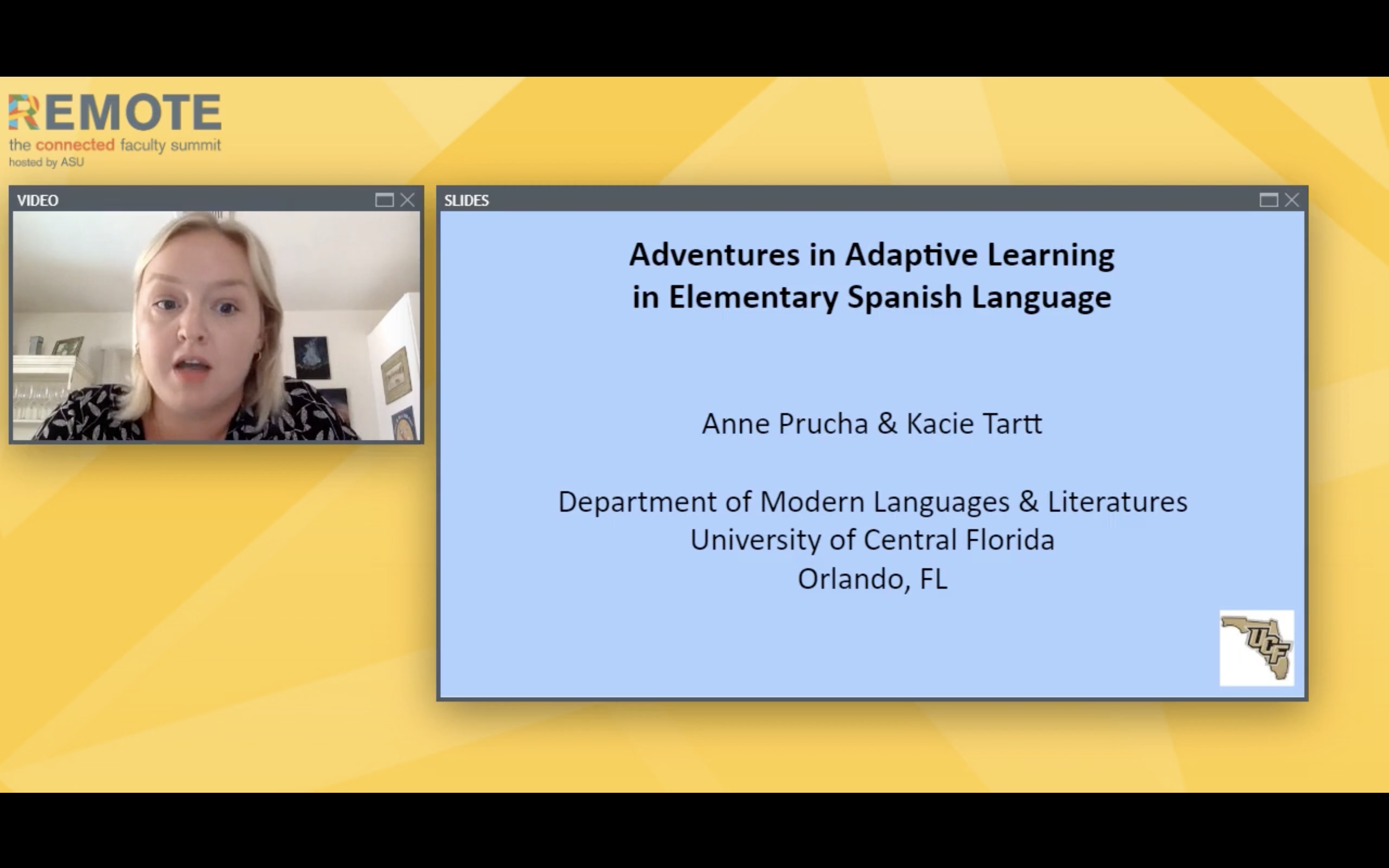
Instructors at UCF share their course redesign experience after adopting adaptive learning in a Spanish language course.
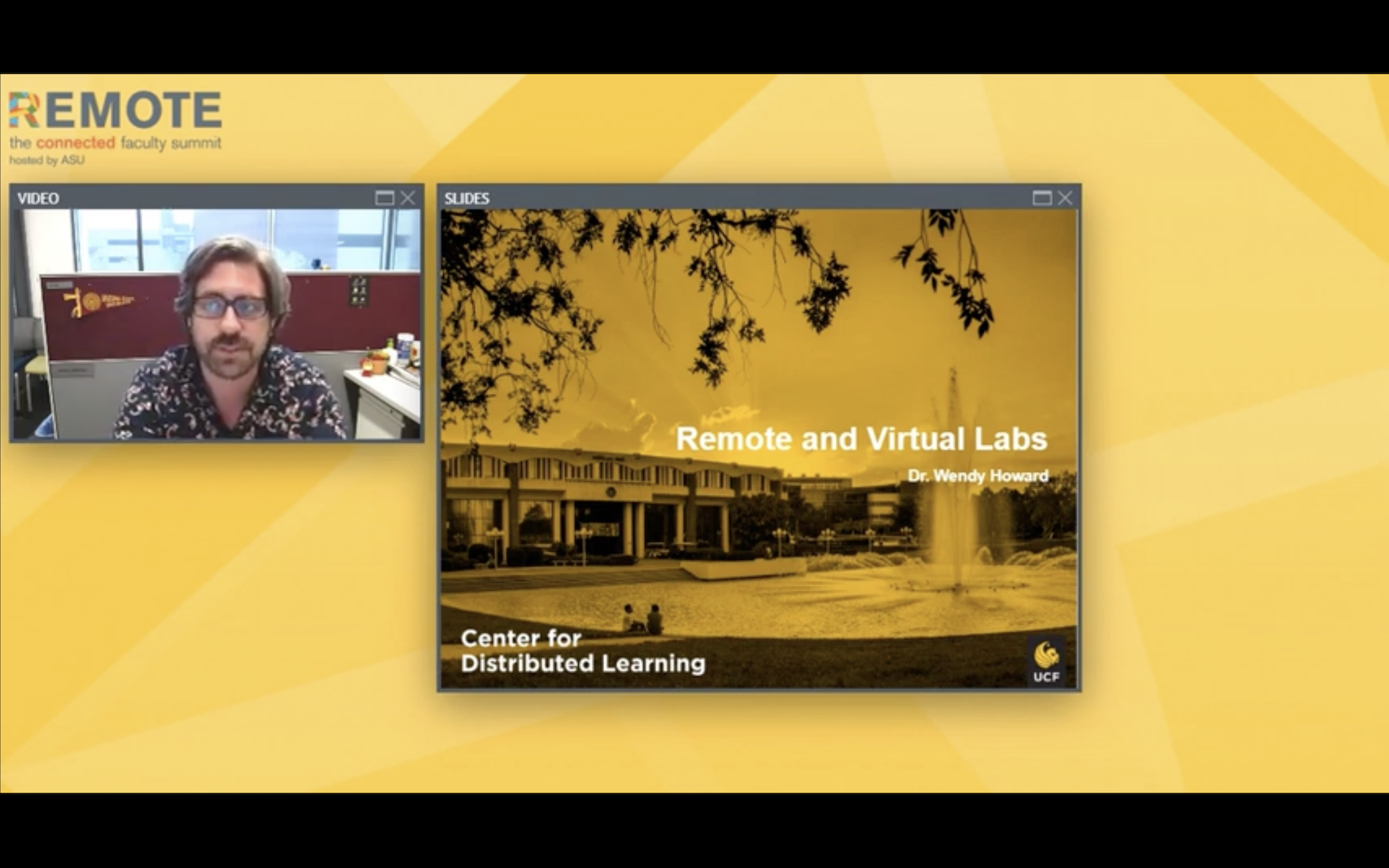
Dr. Wendy Howard of the University of Central Florida provides resources for teaching of STEM lab courses remotely.
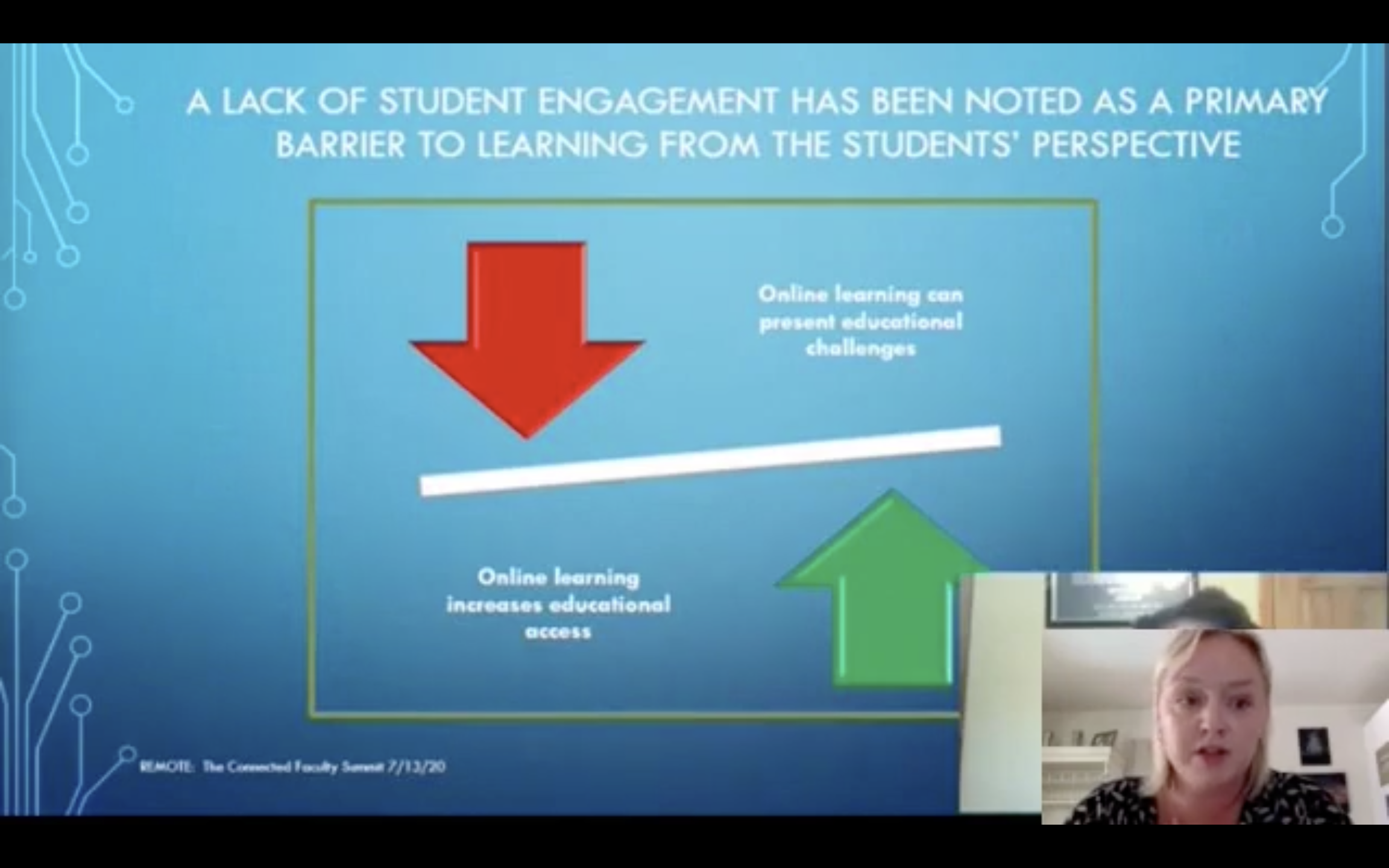
Dr. Michelle Hampton from the Cuyahoga Community College discusses how to structure online classes with engaging and interactive content.
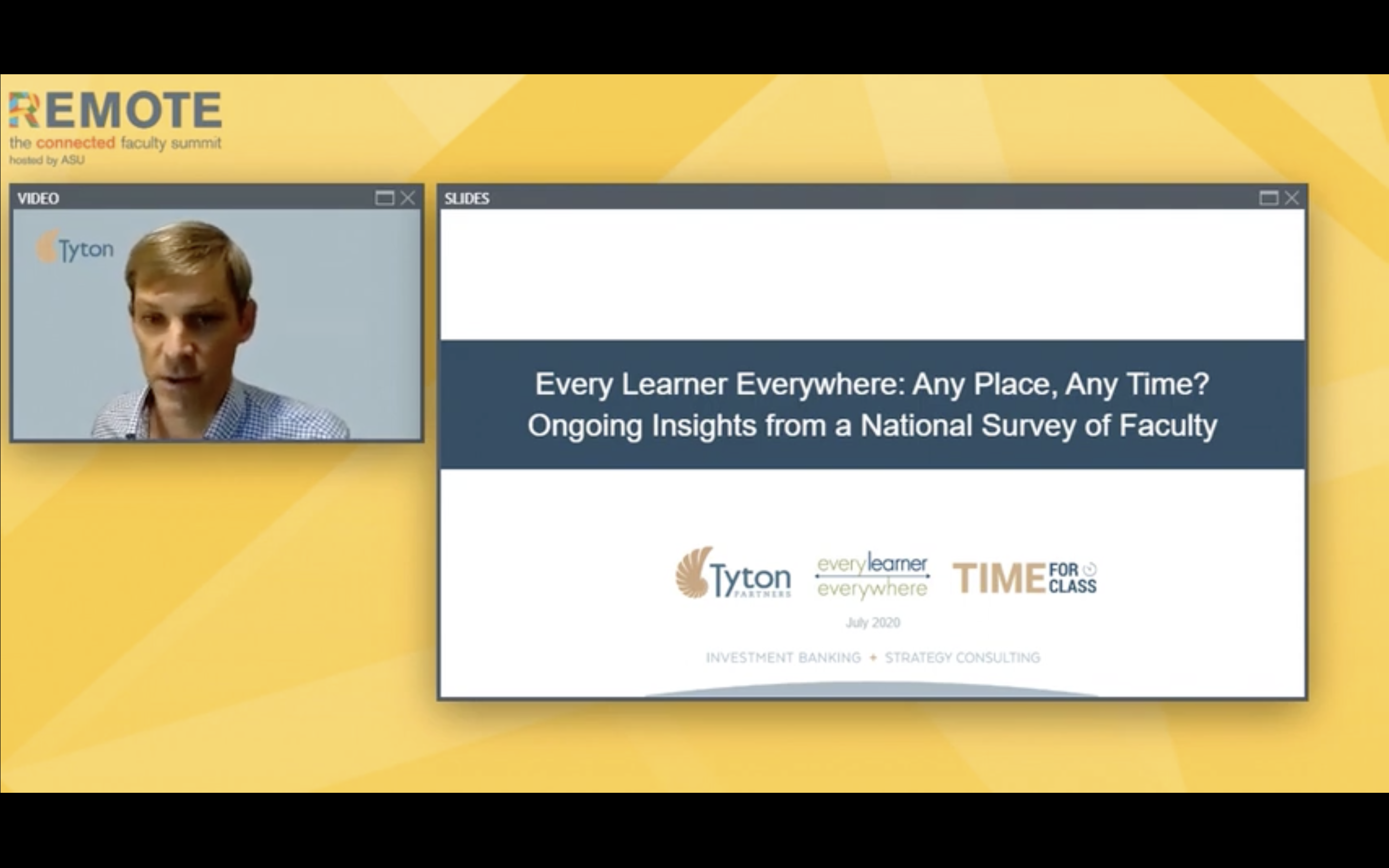
Researchers discuss recent findings in a survey of faculty teaching remotely during the Covid pandemic leaving faculty with a more positive perception of online learning.
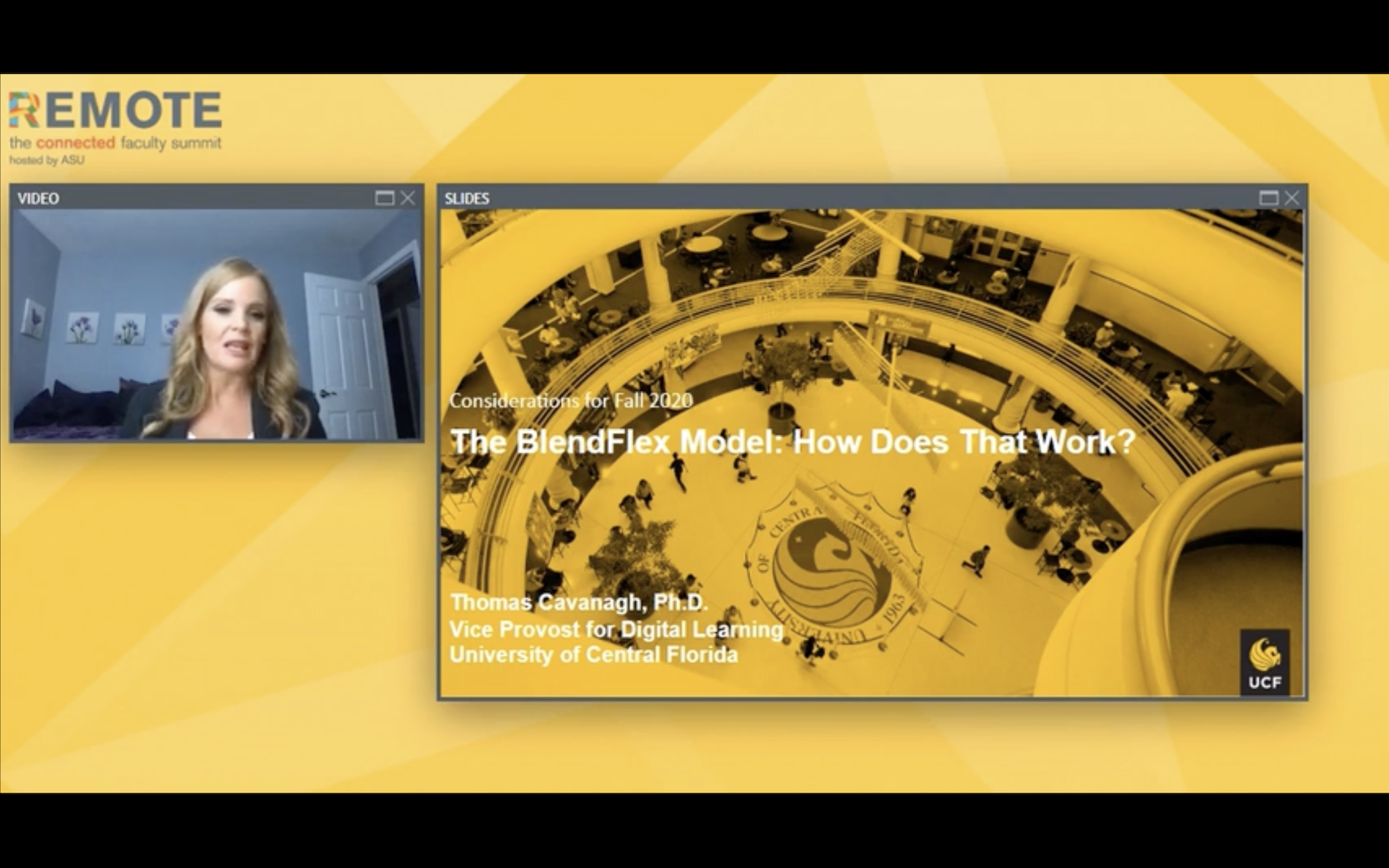
Thomas Cavanagh of UCF and Athena Kennedy of Purdue University Online explain the BlendFlex delivery model for remote teaching.
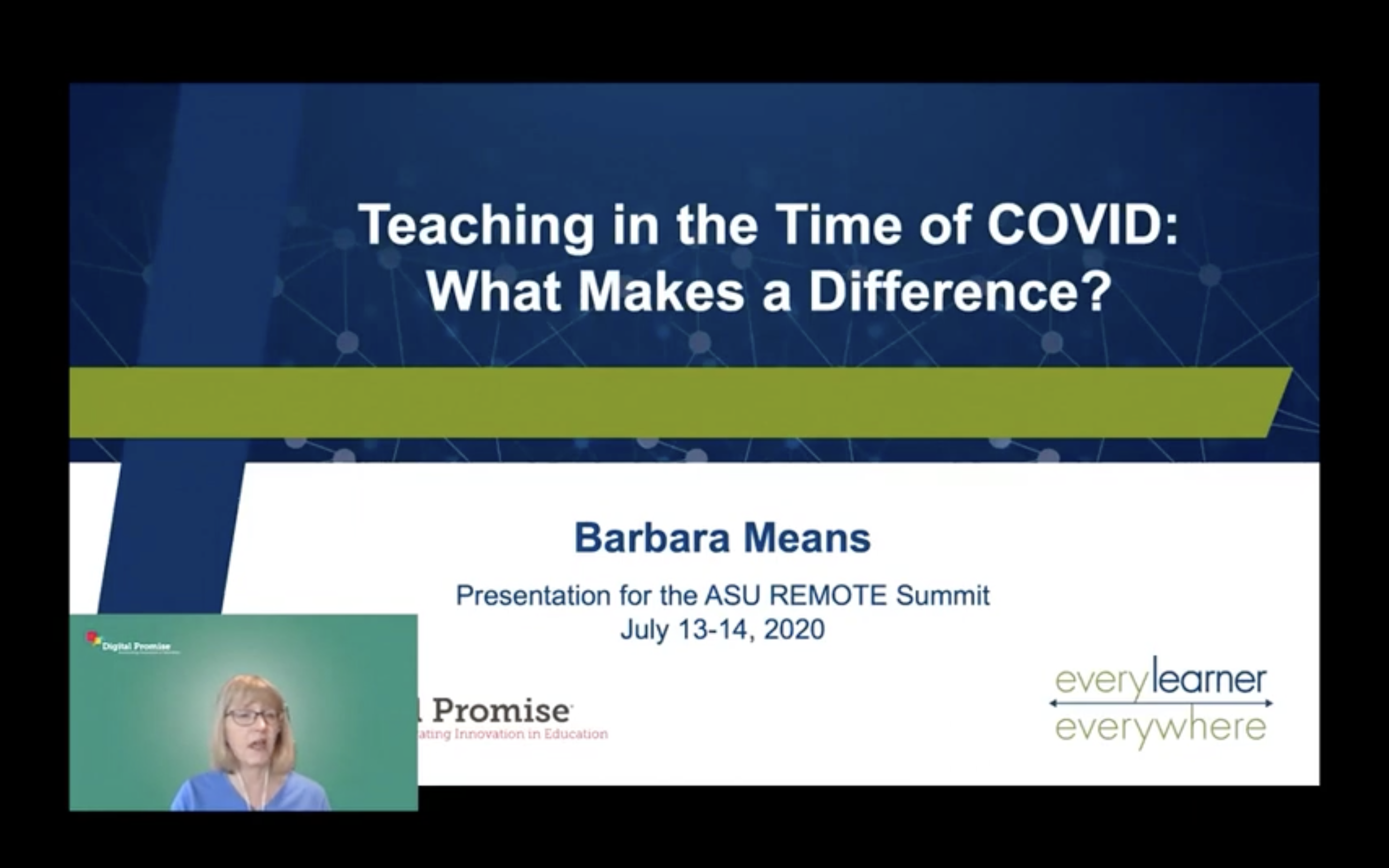
Barbara Means of Digital Promise discusses survey results of students’ experience of the rapid shift to all-online courses in Spring 2020.
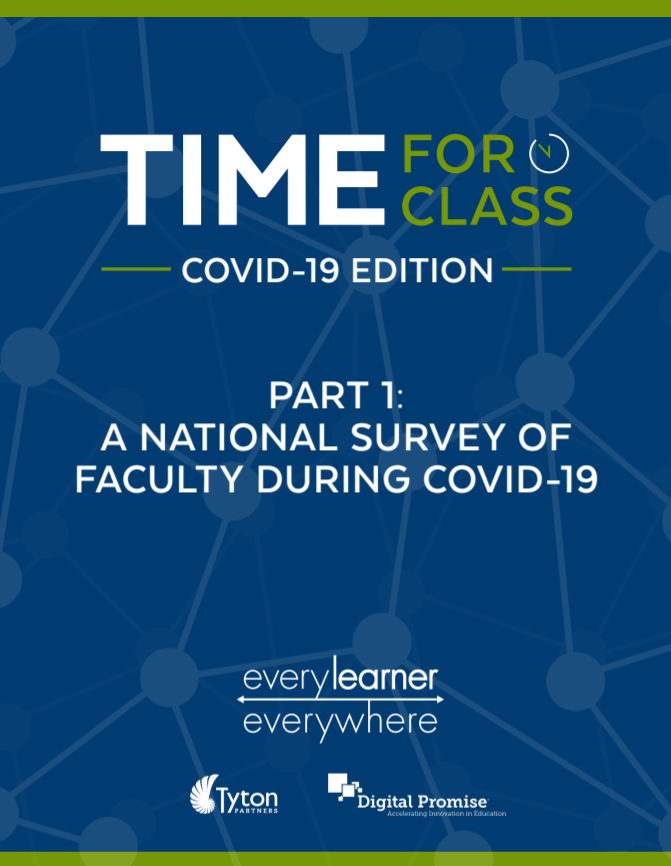
The report presents first results from an ongoing series of surveys and focus groups with faculty designed to understand the impact of COVID-19 on higher ed.
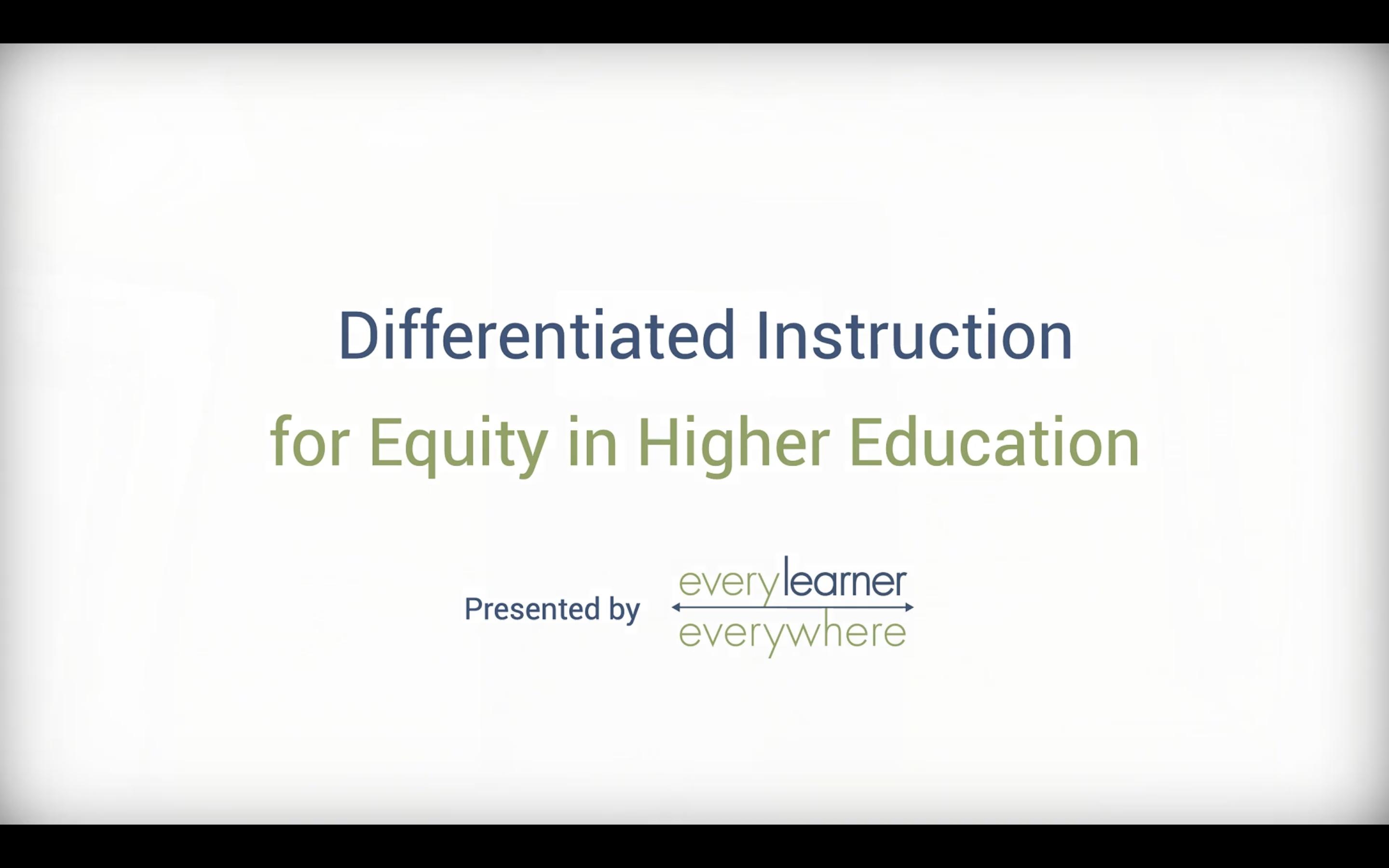
This video provides an introduction to differentiated instruction as a means to enhance the quality learning environments and to engage students in relevant and meaningful education.
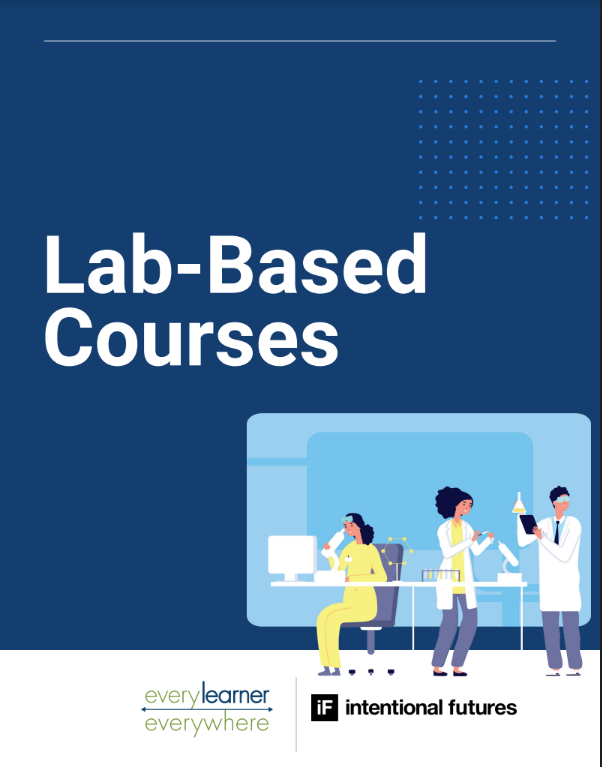
In this resource, we’ve given an overview of a variety of options for lab-based courses to translate experimental activities to a digital learning environment.
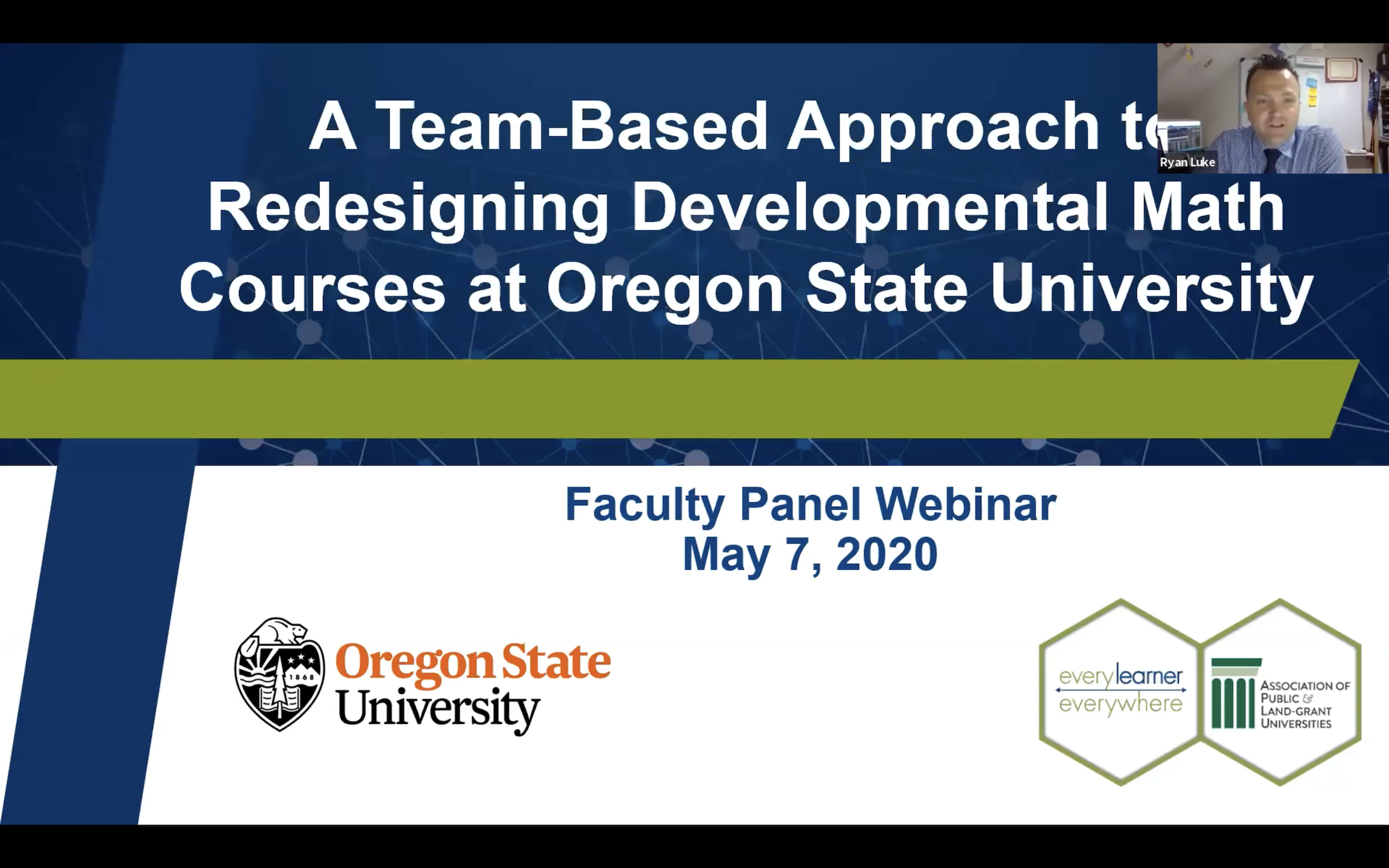
Faculty share how they coordinated the redesign of their developmental math courses using adaptive learning courseware to successfully improve course Drop/Fail/Withdrawal rates.
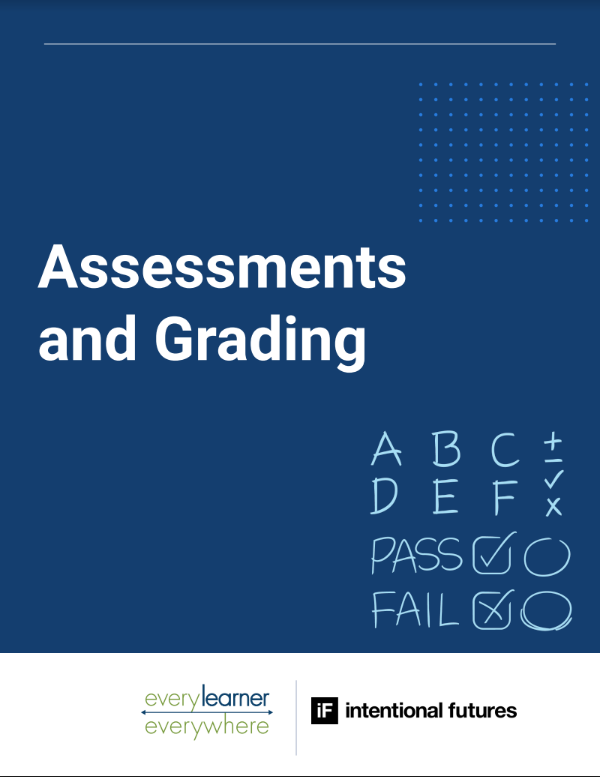
This resource offers adjustments to make to your assessment practices that can help you adapt your assessments during academic disruption.
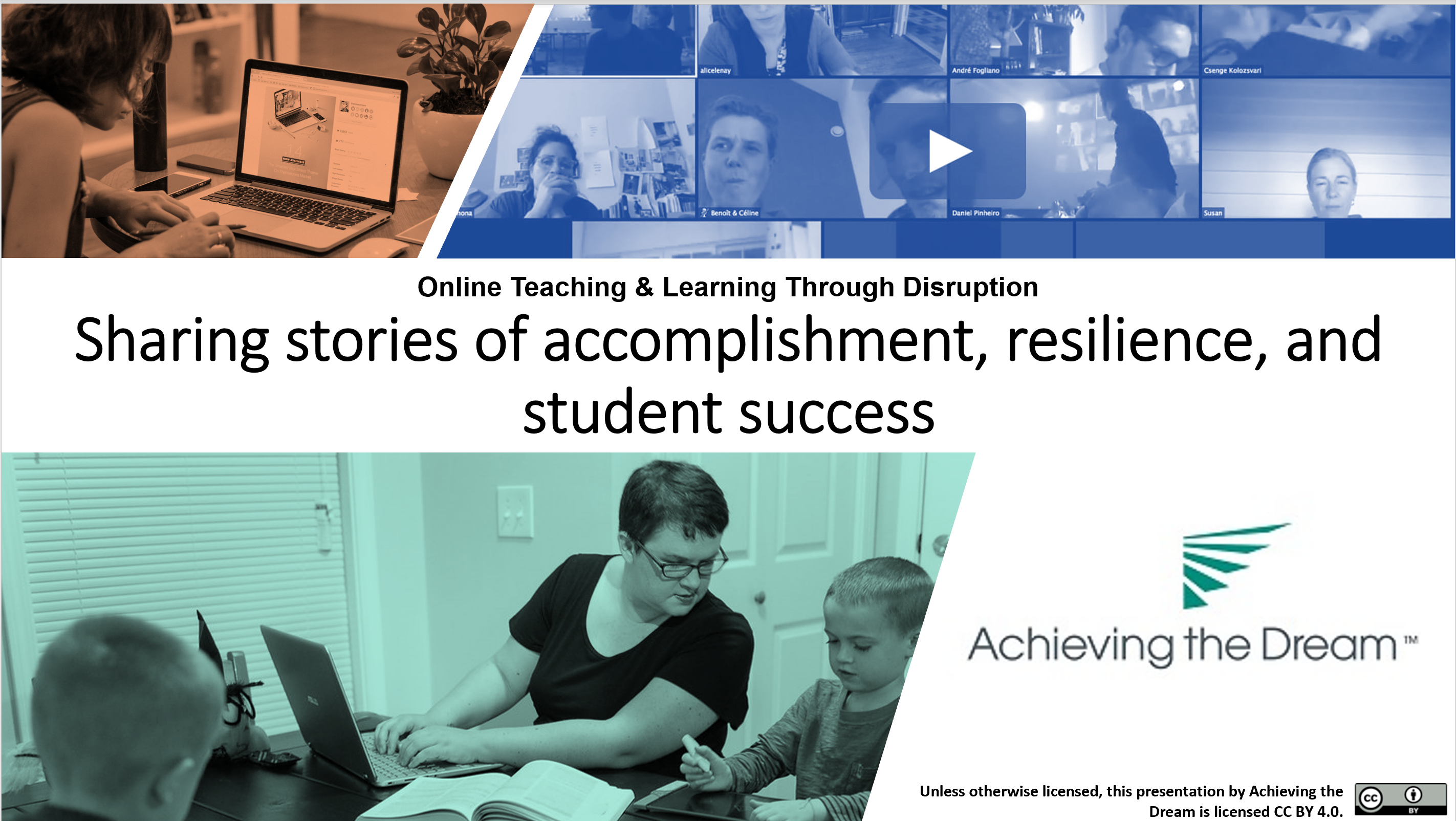
A webinar focused on supporting faculty, staff, and students during the closure of community college campuses across the United States during the Covid-19 pandemic.
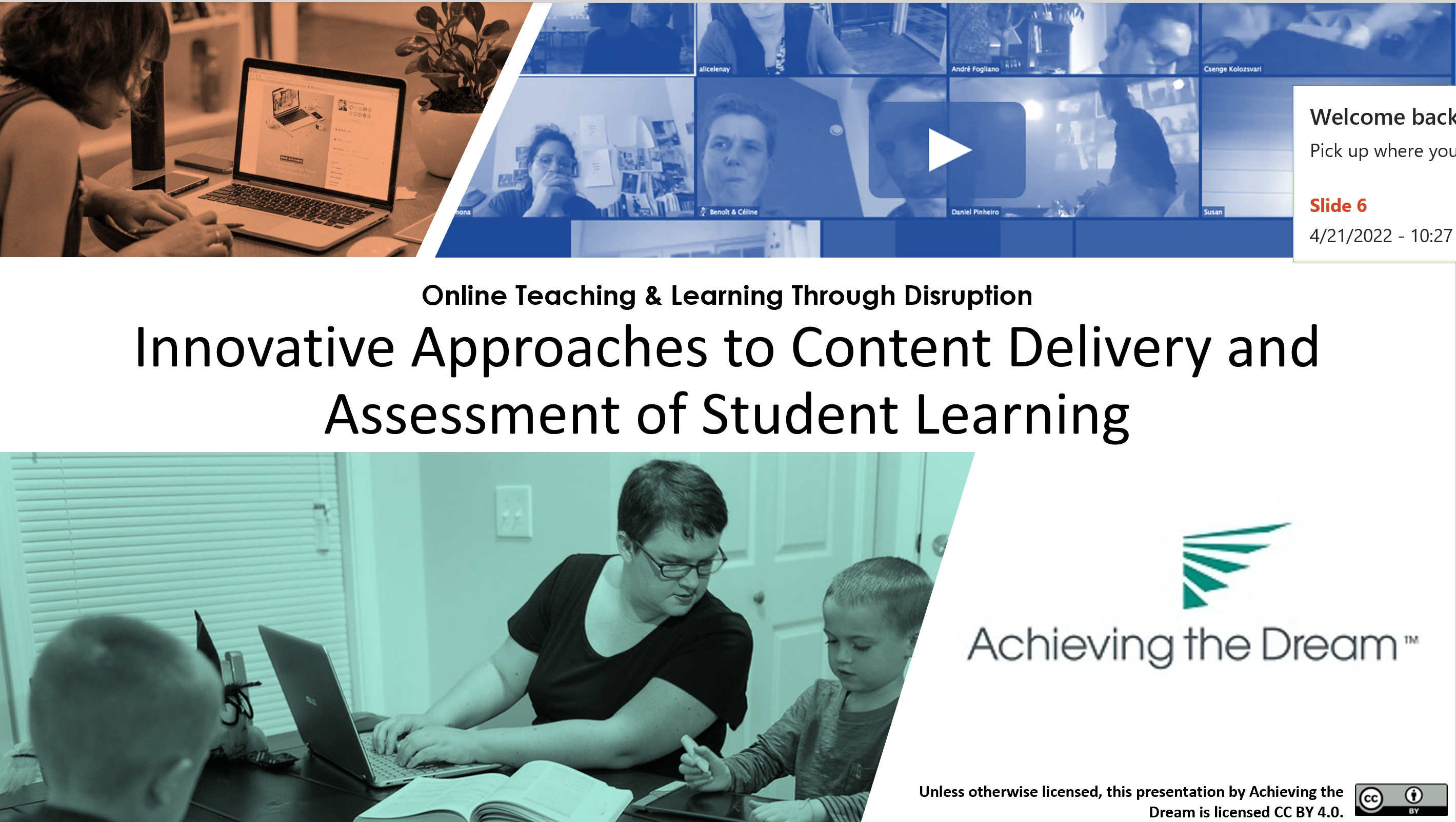
A webinar focused on supporting faculty, staff, and students during the closure of community college campuses across the United States during the Covid-19 pandemic.
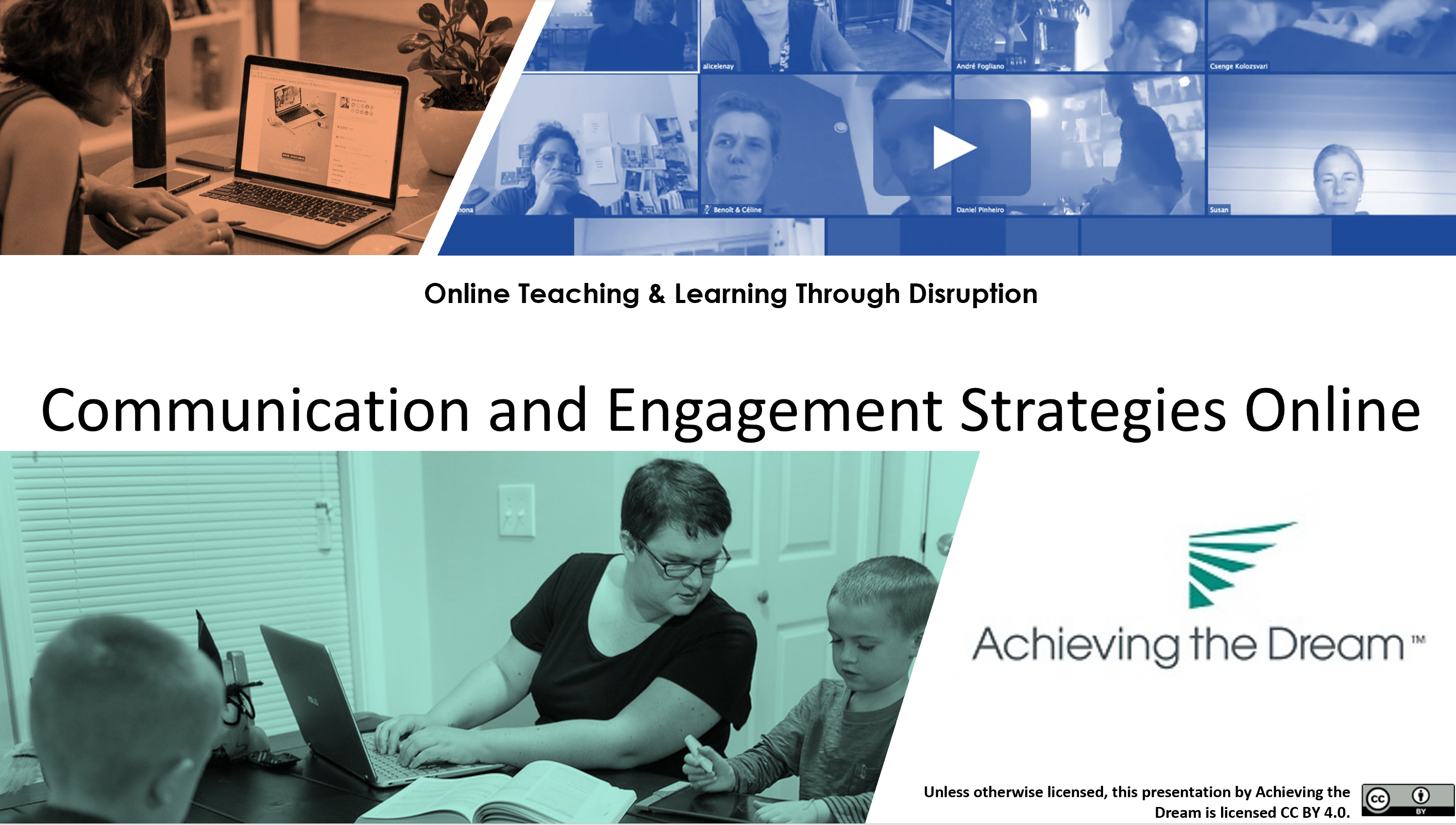
A webinar focused on supporting faculty, staff, and students during the closure of community college campuses across the United States during the Covid -19 pandemic.
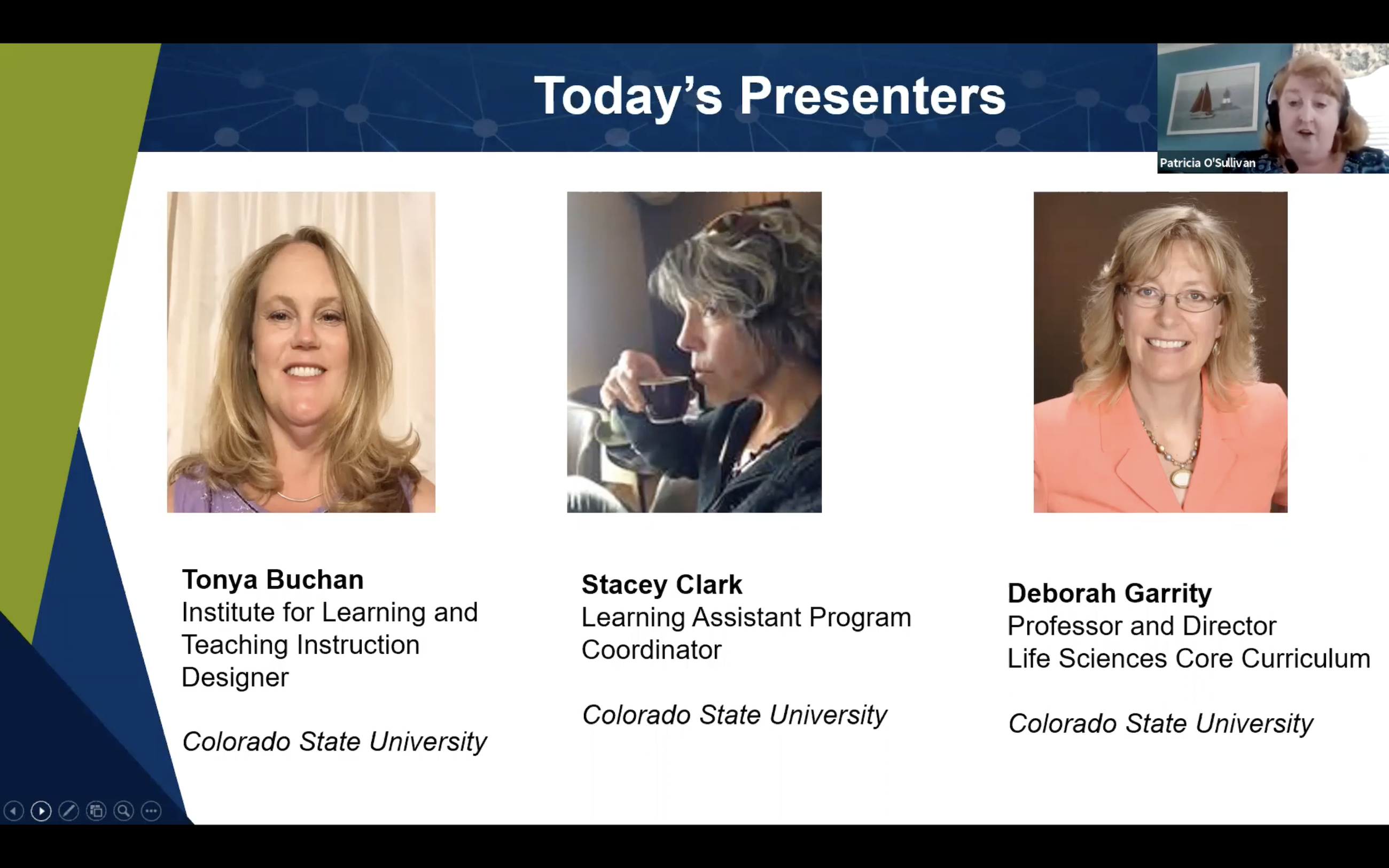
In this webinar, faculty and instructional support staff share a model for student success with undergraduate learning assistants.
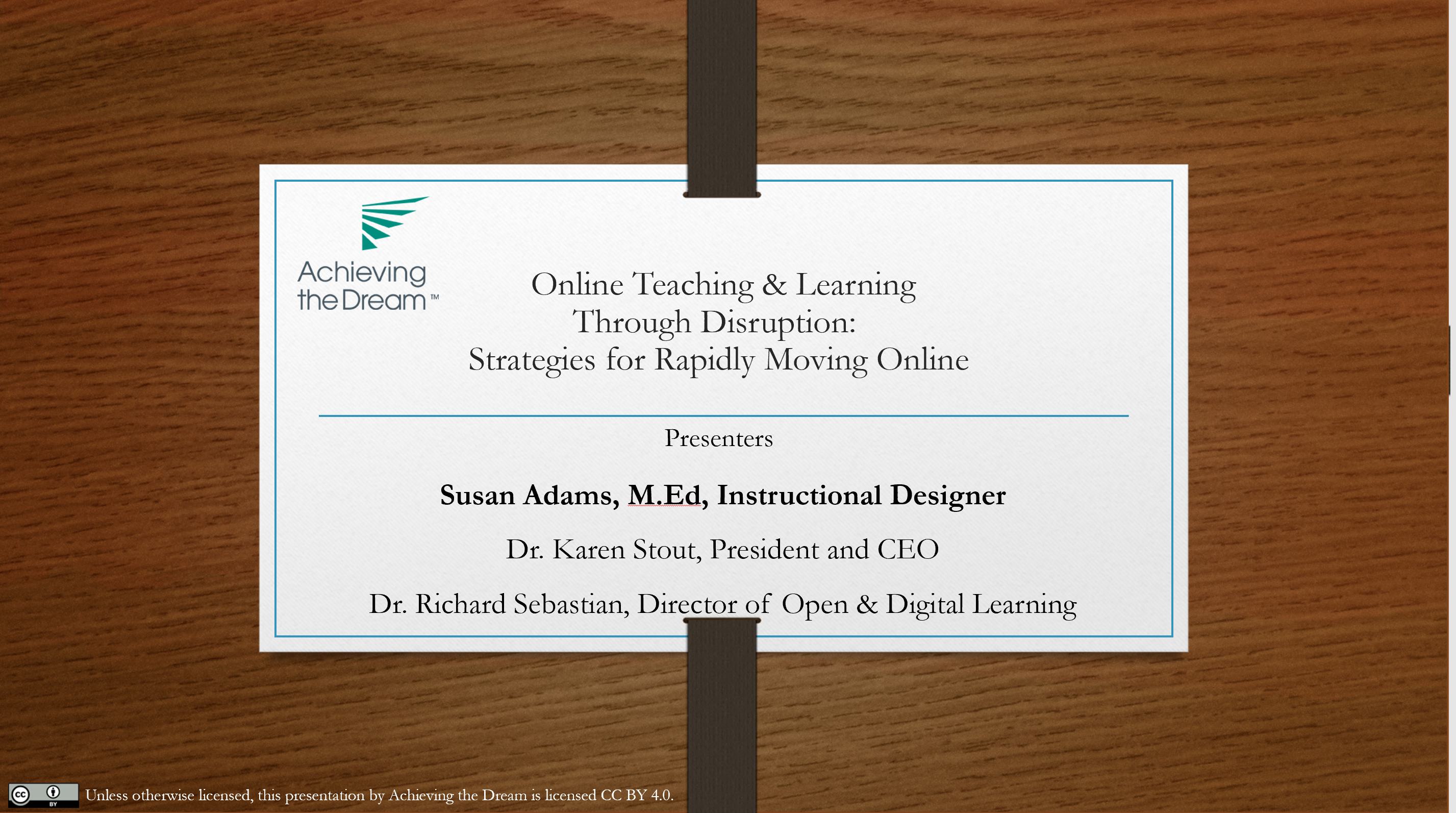
A webinar focused on supporting faculty, staff, and students during the closure of community college campuses across the United States during the Covid -19 pandemic.
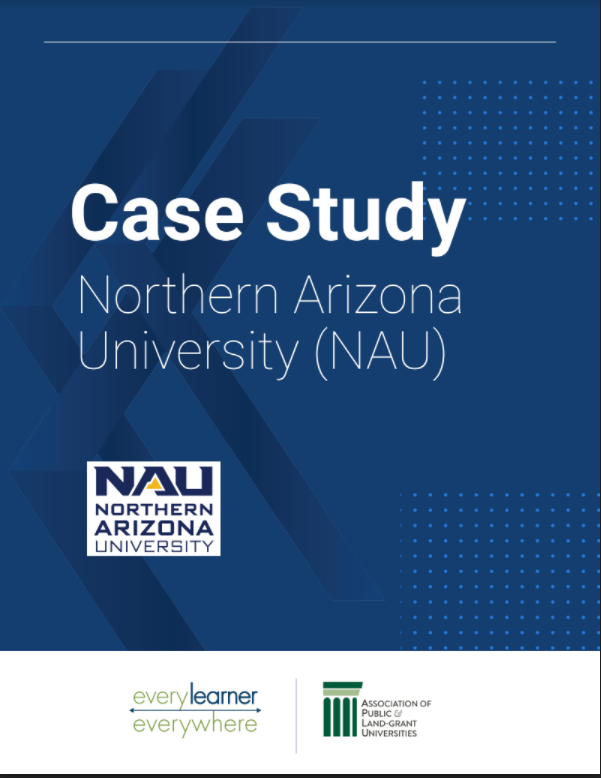
This case study from Northern Arizona University demonstrates the increase in student success that can result from the implementation of adaptive courseware.

APLU’s Powered by Publics hosts a panel discussion of digital learning experts to help institutions move quickly to remote learning during the start of the Covid-19 pandemic.
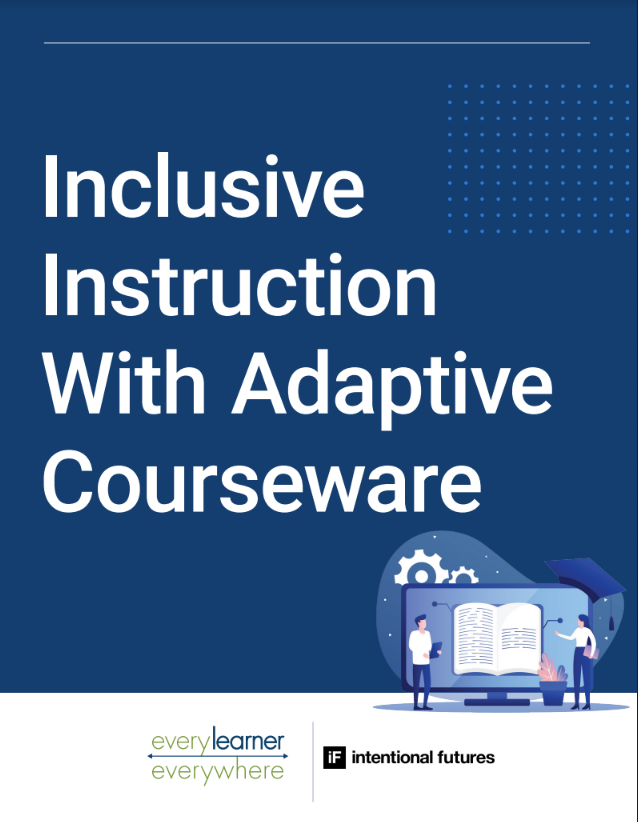
A summary of approaches to developing and evaluating accessible and inclusive courseware

In this webinar, faculty share how student experiences and feedback has improved their overall use of adaptive courseware.
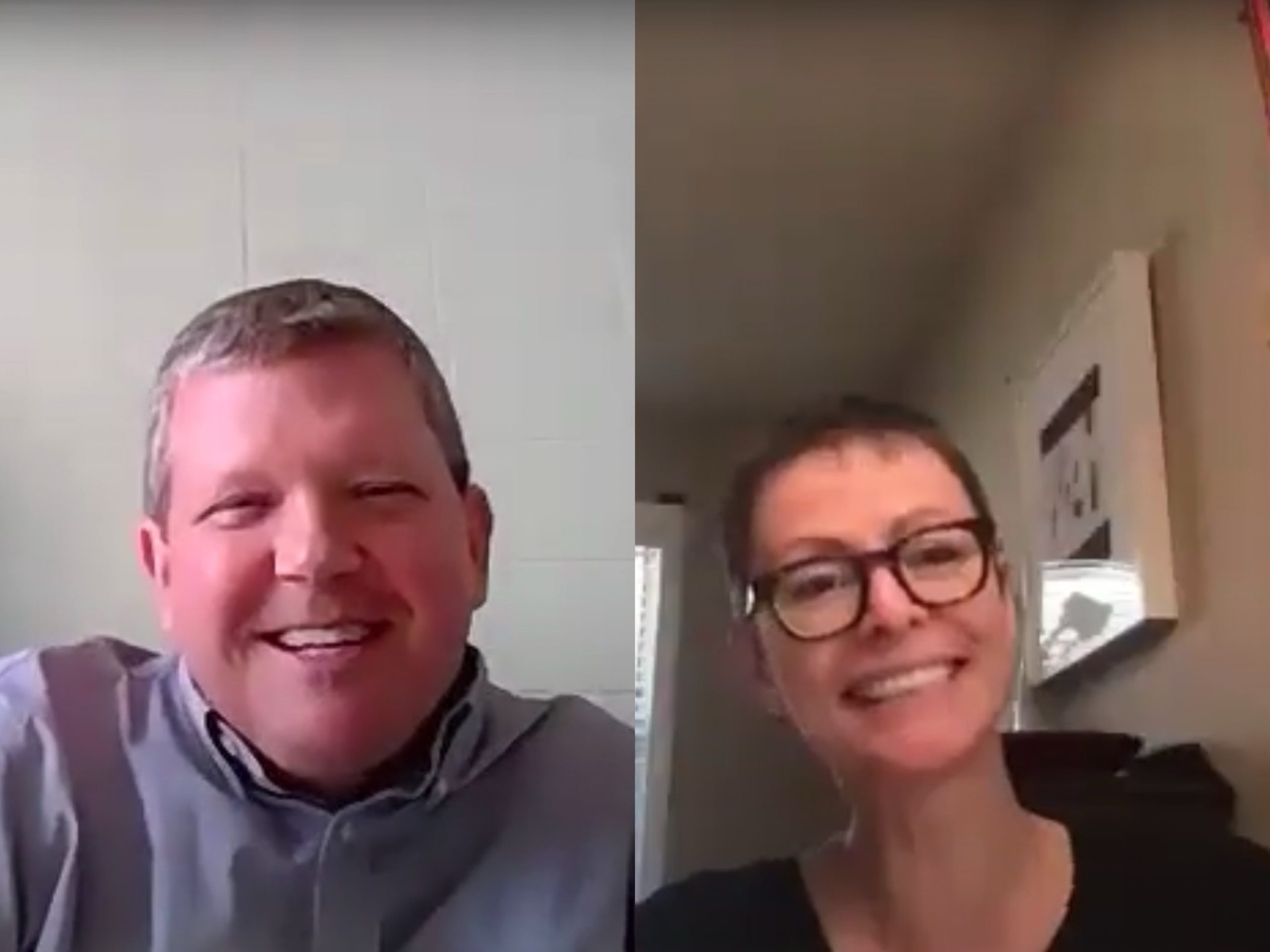
In this webinar, faculty discuss the resources needed for a successful implementation of adaptive courseware and the importance of the relationship with a courseware vendor.
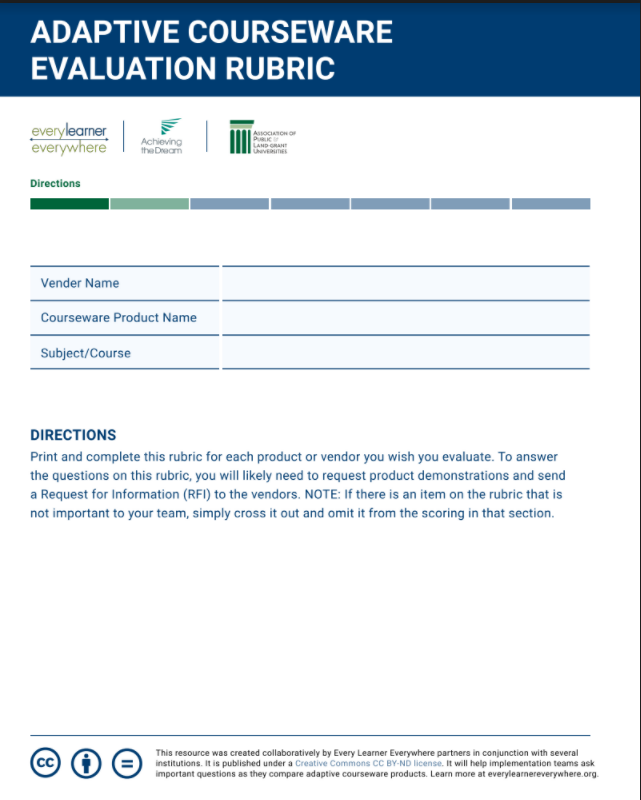
A courseware selection rubric for evaluating courseware products during the adaptive courseware selection process.
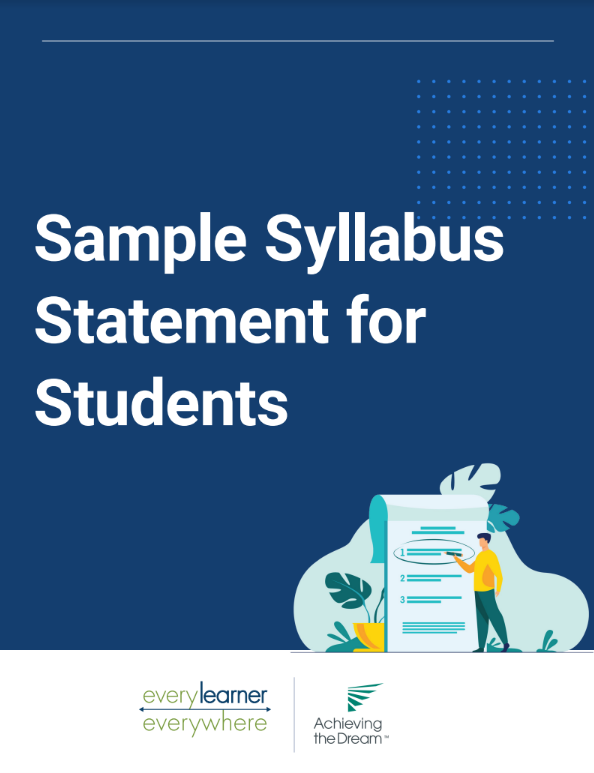
This is a sample syllabus statement to introduce the adaptive courseware component of your course to students.

This brief provides an overview of the current research on the effectiveness of adaptive courseware broadly and in the discipline of Chemistry.
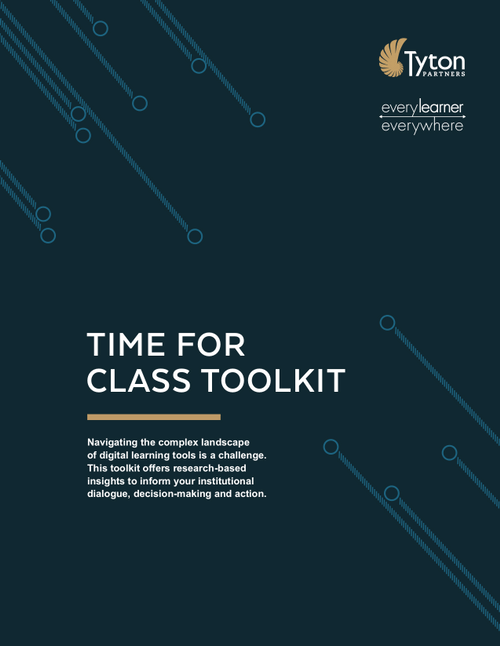
The Time for Class 2019 Toolkit is a set of research-based action briefs and tools designed to support institutional dialogue, decision-making and action.



































































